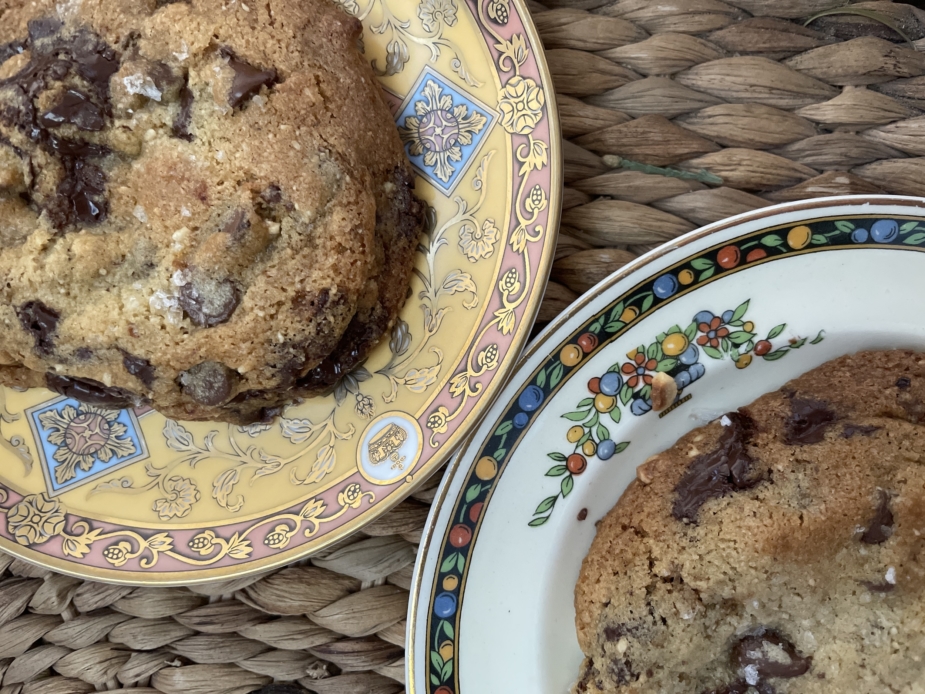Sun, 6 March 2022
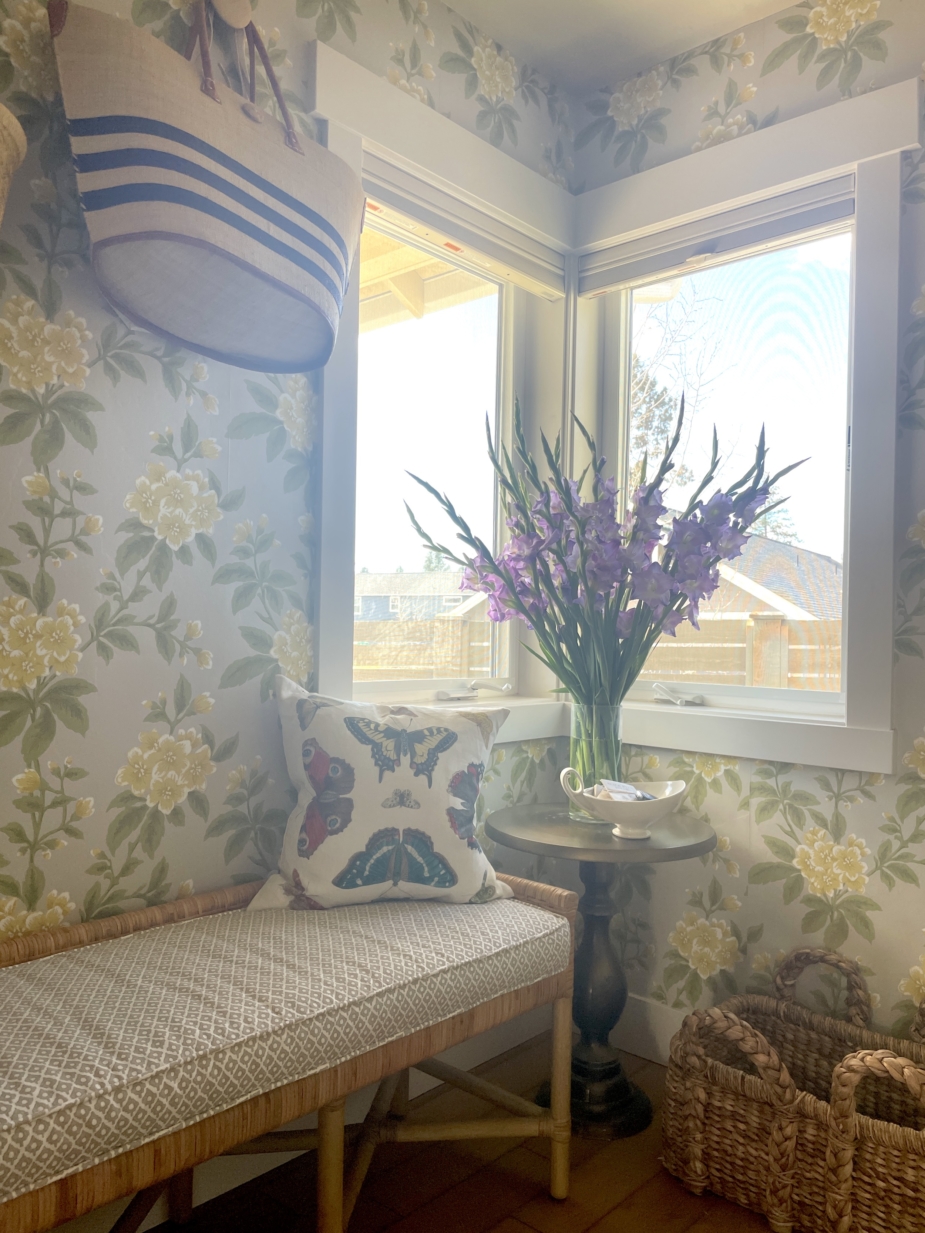
“Since most of us spend our lives doing ordinary tasks, the most important thing is to carry them out extraordinarily well.” —Henry David Thoreau It's morning, early in our house. Norman has finished his breakfast served in the mudroom which is adjacent to the kitchen, and I begin toasting my steel cut oats. The clanking of pans being chosen for the two egg omelette, the whisk of the eggs in the mixing bowl provide the soundtrack of our mornings, and Norman finds his way onto the rug in front of the stove to enjoy his daily dental chewy. An ordinary moment that happens every single morning and to me it is extraordinary.
"Be extraordinary at the ordinary." —Andy Puddicombe, meditation teacher One of the common refrains I heard from TSLL readers over the past two years was while disheartened and pained by the reason for the slower pace of life, was that it was in fact a pace they appreciated. No longer did they have to fight back or expend energy to explain why indeed the slower pace suited them and nourished them. Now that lives and schedules and expectations are beginning to pick up steam and the ability to pursue, travel and experience those unique and intriguing occasions we longed for as we were unable to for some time return, the importance of choosing our pace in our everydays and how we hold ourselves in our everydays, having seen the difference in ourselves, a better time could not be had to continue to, or fine-tune so as to improve how we go about living in the ordinary moments. Often the word ordinary connotes a 'hum-drum' energy, an energy not desired or seen as inferior especially when we think of its relation to the word 'extraordinary'. However, all ordinary means is that it, whatever 'it' is, is commonplace. And for our purposes in today's episode/post, ordinary simply refers to the ability to have a day without strife, to tend to a job or a task to make money so that we can live our lives, to eat our daily meals and move about our home and community engaging with our family and coworkers and neighbors as they too move about a schedule similarly including the same elements. Why I gravitated to the quote I share above - be extraordinary at the ordinary - is because at its core we are choosing to focus on what is necessary, and so thereby we keep those necessities in our days, eliminate what weighs down or expends energy unnecessarily, and thus, we are choosing to focus on quality over quantity which is a core premise of living simply luxuriously.
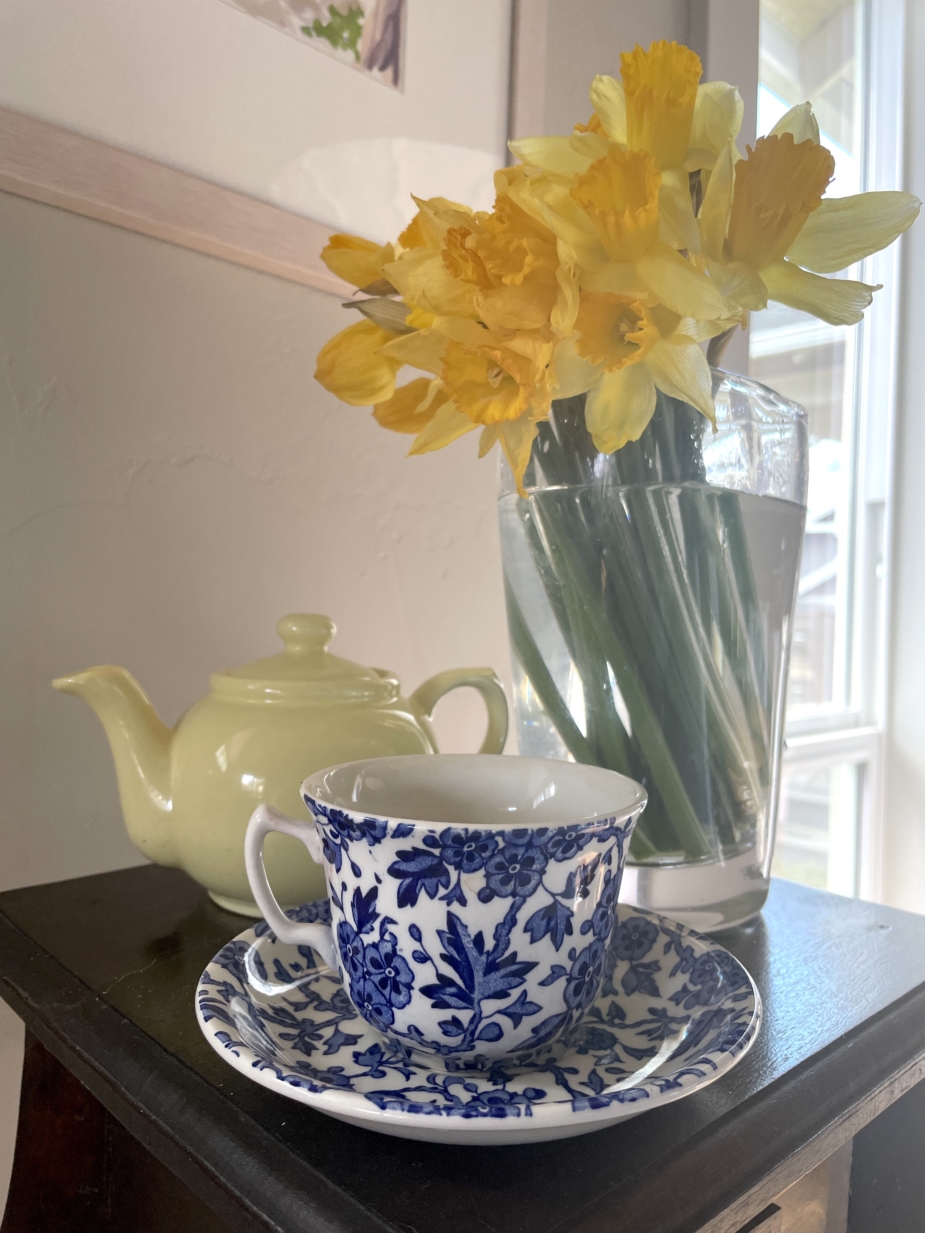
An example from Shannon's life of making ordinary extraordinary in our everyday lives As I type, it is early morning at Le Papillon. Norman is snuggled up next to me, softly snoring, and the house begins to warm up while the classical music plays softly providing a gentle easing into the day. The day, by objective definitions, is ordinary, but in this moment, it feels extraordinary. The companionship and good health of my pup, a home and thus a roof over my head to keep me warm and safe, the means (my computer) to do my work well, and the beauty of art (the music) to lift the day, yet keep it calm. How exactly do we elevate the ordinary to the status of extraordinary? Start with how you move through your everydays.
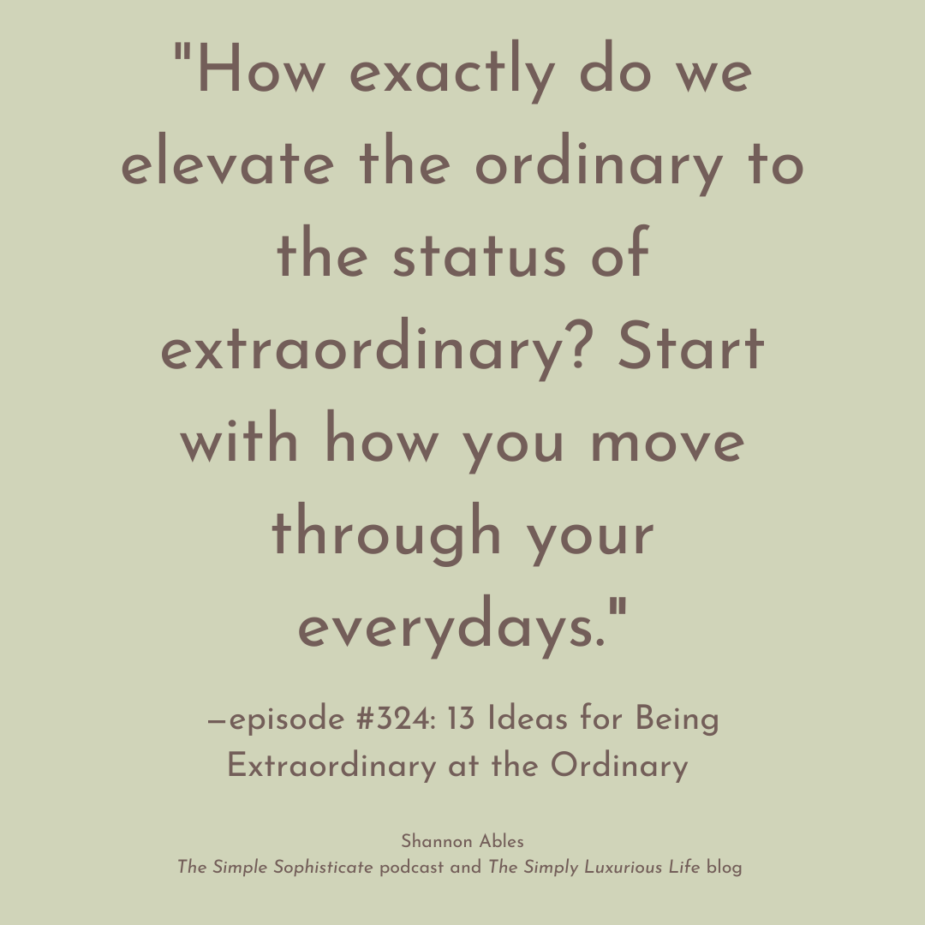 While Henry David Thoreau's quote shared above is less known, it partners well with the quote that immediately springs to my mind, and more widely recognized, as is a mantra I display in my office as a way to ground me. I change the pronouns of course and do so as well here.
"I have learned this at least by my experiment: that if one advances confidently in the direction of [her] dreams, and endeavors to live the life which [she] has imagined, [she] will meet with a success unexpected in common hours." The awesomeness of life happens in the everydays, and guess what? The super majority of the days of our lives are everydays. Therefore we have so many opportunities to make them extraordinary. Let's break it down a bit further. Here is a list of concrete practices to incorporate into how you live in your everydays to welcome the extraordinary to be experienced:
Each of the ideas suggested are merely a sampling of how we can elevate the 'ordinary' everyday to something extraordinary to experience each day. If you have been a long-time reader of the blog or listener of the podcast, you know that nearly all of the content you find shares inspiration, ideas and examples of how to do exactly this - live an extraordinary life in the ordinary moments. A key component, something we've tangentially talked about in a variety of ways is to understand why we/you place so much value on the extraordinary moments celebrated by outside sources - the awards, the status symbols, the life markers set by society one must achieve. While we are social creatures, and we want to feel included, we want to feel seen, appreciated, applauded and accepted, when we seek out healthy sources of each of the A's as David Richo describes as the 5 Key A's in a healthy adult relationship (ep. #287), we can find them and savor them in our everydays. So often we seek something that is already within each of us or capable of being nurtured with those in our everyday lives already. When we discover how rich we already are for living an extraordinary life in our everydays, the supposed 'grand' achievements become less tempting to pursue especially if doing so takes us away from what we know is quite special and we are quite fortunate to have - healthy, loving relationships, a career or calling that fulfills us, a home that gives us safety, shelter and security, a community that is at peace, small, yet significant opportunities to learn and grow. When we choose to embrace the choice of living extraordinarily in our everydays as Thoreau advises, it becomes easier to hold ourselves in the present moment, and because we are doing our best in those moments that each day offers, we go to bed each night more at peace and thus slumber is deeper, more nourishing which makes the new day that we awake to full of all the more potential to be extraordinary all over again. The cycle feeds itself, and we hold the key in how we hold ourselves, what we notice, what we engage in, how we engage, what we let go, etc. . Expend energy on the things that bring value, find strength to let go of unhelpful, unnecessary or detrimental tasks, habits or relationships, and your life will begin to feel quite extraordinary. Find inspiration for each day of the year, how to live well in your everydays in TSLL's new book - The Road to Le Papillon: Daily Meditations on True Contentment (available now). ~Take a peek inside the book, listen to an excerpt and discover why the title - Le Papillon - was chosen in this 15 minute video with Norman and I.
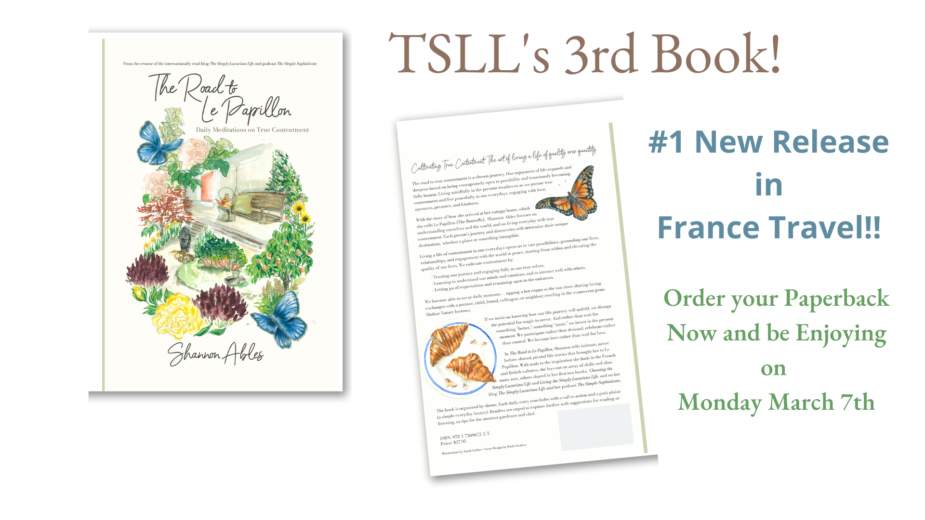
Petit Plaisir —Murder in Provence, BritBox (based on M.L. Longworth's Provençal mystery series)
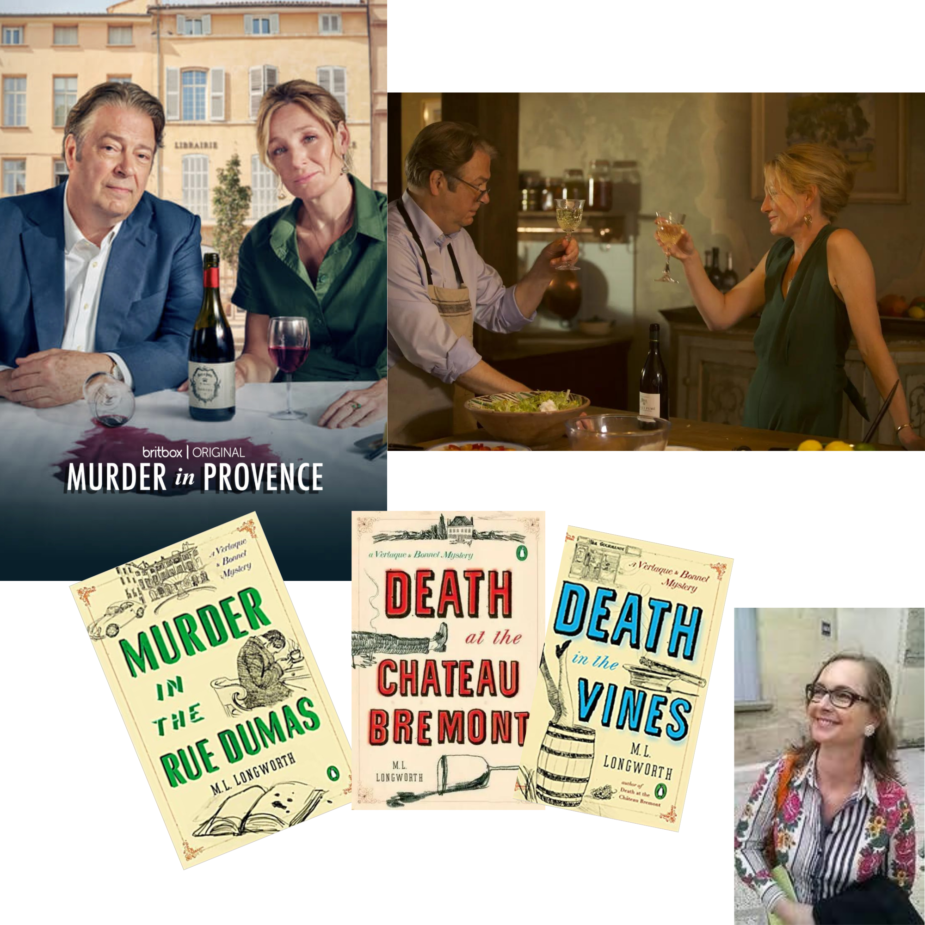 ~The Simple Sophisticate, episode #324~Subscribe to The Simple Sophisticate: iTunes | Stitcher | iHeartRadio | YouTube | Spotify | Amazon Music |
Sun, 20 February 2022
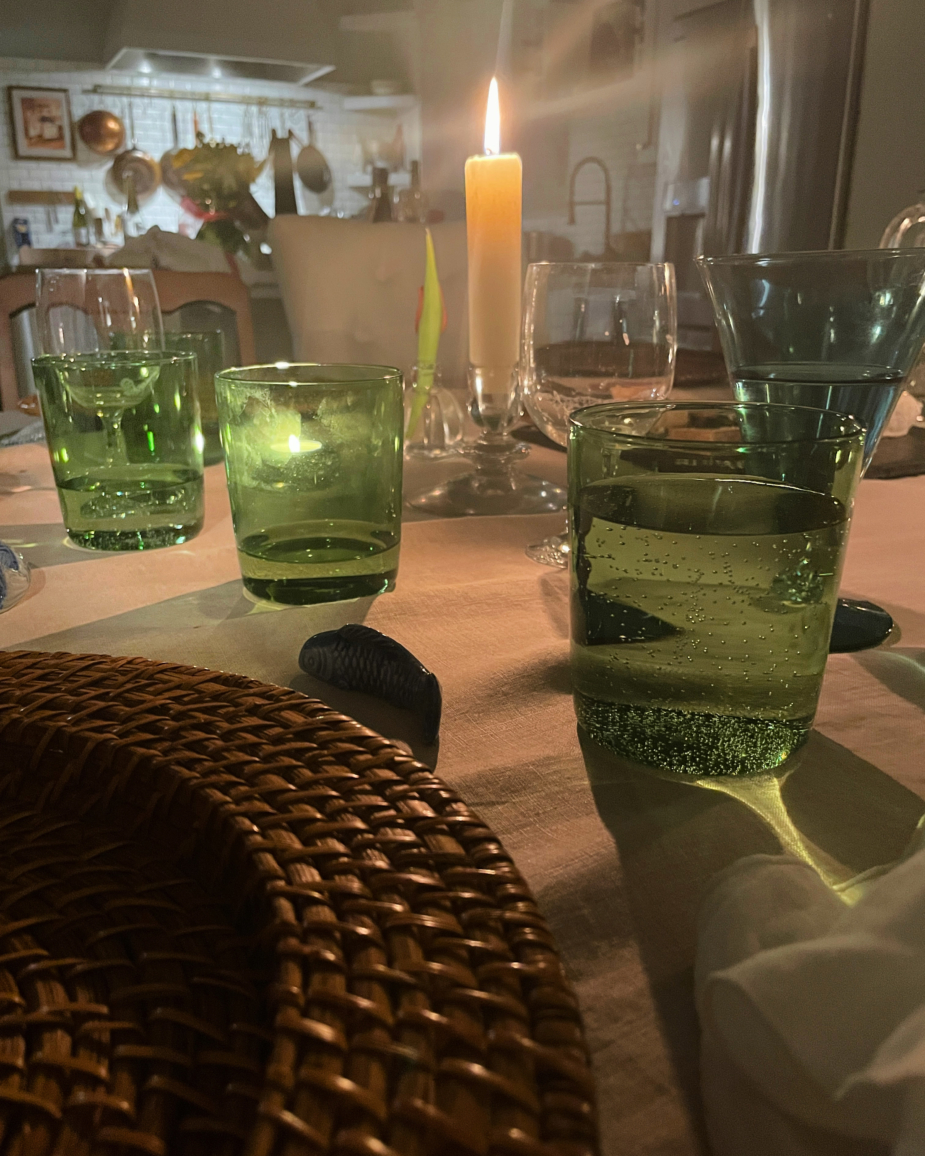 ~Note to readers of TSLL's 3rd book, The Road to Le Papillon. I have updated the Read Further link to bring you to this post for July 2nd's entry in the book. If you would like to reread the original link (it was also shared in April 19th's entry), click here to read Understanding Yourself by Taking Off the Blindfold. The clock neared midnight, the candles on the table still flickered just at a slightly lower height than when they were lit only six hours ago, the kitchen was full of dishes and the platters of food offered crumbs and hints at the menu that had just recently been shared and enjoyed amongst friends. The first dinner party at Le Papillon took place over this past weekend, and after being thoughtful about when to invite friends in a large gathering into my home, honoring each's comfort level and ensuring safety and health precautions were clearly communicated so all could relax and enjoy the evening (all friends were boosted, and tests were made available to ease everyone's mind), the date was set, and the menu began being planned as well as how to inaugurate Le Papillon as this would be the first dinner party ever held. My friends said yes. Each showed up with an enthusiasm and welcoming spirit that warmed my heart and reminded me of so much that I missed during these past two years. As each course was served, each glass poured - sipped and held up to toast, the volume of the playlist was turned up ever so slightly as the ease of stepping back into the conviviality of seeing each other, talking intimately, laughing heartedly and listening closely felt second-nature despite the delay of enjoying such a setting. As goodbyes were exchanged, fresh-from the oven cookies were given to each guest to enjoy on the car-ride home. I closed the door, turning around to look at my home and the visual reminder of all that just been shared and enjoyed. I sighed deeply and my smile grew widely. Gratitude washed over me, and I knew I wouldn't be going to bed soon. Not because there were dishes to be cleaned, but because I was energized in a way only such occasions can lift my spirits naturally. And so I reminded myself to savor. In episode #213 in 2018 I detailed in nine steps and ideas how to savor any given moment in which you find yourself wanting to remain in the present moment, taking all that you are experiencing in fully so as to hold it in your memory, but as well, to let it be what it is, not forcing it be what you want it to be. Today I would like to further the conversation on savoring and share with you 6 everyday moments to savor or moments in which we may forget to savor well, giving ourselves permission to take it in, slow down and revel in the awesome gifts received by the moment that we are delighting in. Studies have taught us that there are three different ways to savor life moments, and when we do consciously welcome the art of savoring into our lives, we improve our well-being. So while it may see indulgent, even selfish and at the very least unnecessary to engage in savoring, the truth is, to know how to savor, and incorporate doing so into our everyday life, is to increase the quality of our life. As detailed through extensive research by Dr. Jordi Quoidbach of the Barcelona Graduate School of Economics, the three types of savoring depend upon when and what you are savoring as it relates to time:
Much of what will be shared in the list below are moments that we have long anticipated and hoped would go well, and upon such an event going well, we consciously choose to create space for a Peak-Theory moment as a way to fully savor what has just concluded and deepen the much appreciated event even more. Following my first dinner party held in far too long, offered such such an opportunity to create a Peak-Theory experience. For me, when any of the moments listed below occurs, I give myself permission to just be still. I edit out most if not all plans or consciously choose to not make any new plans, and give myself an hour, a morning, afternoon, evening or, if I can, a full day, to just let the good memories wash over me one more time. Partly I do this so that I do not forget a moment. I will even sit down and put it all into my journal as I know I will forgot those small details that made the evening/event/experience so special. Usually I am home for this carved out time, so I will make sure I have a fridge with food for a good meal to be enjoyed, I will snuggle up in my cozy pajamas or leisure clothes, make a pot of tea, soak in a hot bath at some point during the day, maybe (most likely) take a nap at some point and if I am not at home, but perhaps traveling, I will let myself just wander about the city, town or countryside I am visiting, give myself permission to then lounge about in the accommodations and drink in the momentary state of appreciation, calm and giddiness I may be feeling. One of the key components and truths of savoring to remember is that savoring is all the more important because it will never be that all is going perfectly in our lives. We cannot wait to savor siting the need for there not to be any hiccups or stresses occurring - bills still need to be paid, jobs still need to be tended to, the world is still grappling with unrelenting pains. In fact, it is precisely because there will always be some kind of unwanted thing happening in our most intimate lives as well as the grander world that we must incorporate savoring into our lives. When we teach ourselves that savoring is not indulgent but necessary, when we acknowledge that such awesome moments, as the ones listed below, but there are undoubtedly many more, do not happen every day, we are living in the present, we are living consciously and we are elevating the quality of our lives. We are appreciating being alive, being human and as our stress-levels gradually decrease, we become better able to navigate through unwanted moments and we find a deeper, steady, resting state of contentment. Simply put, savoring life doesn't require perfection, rather the art of living a life you love requires savoring.
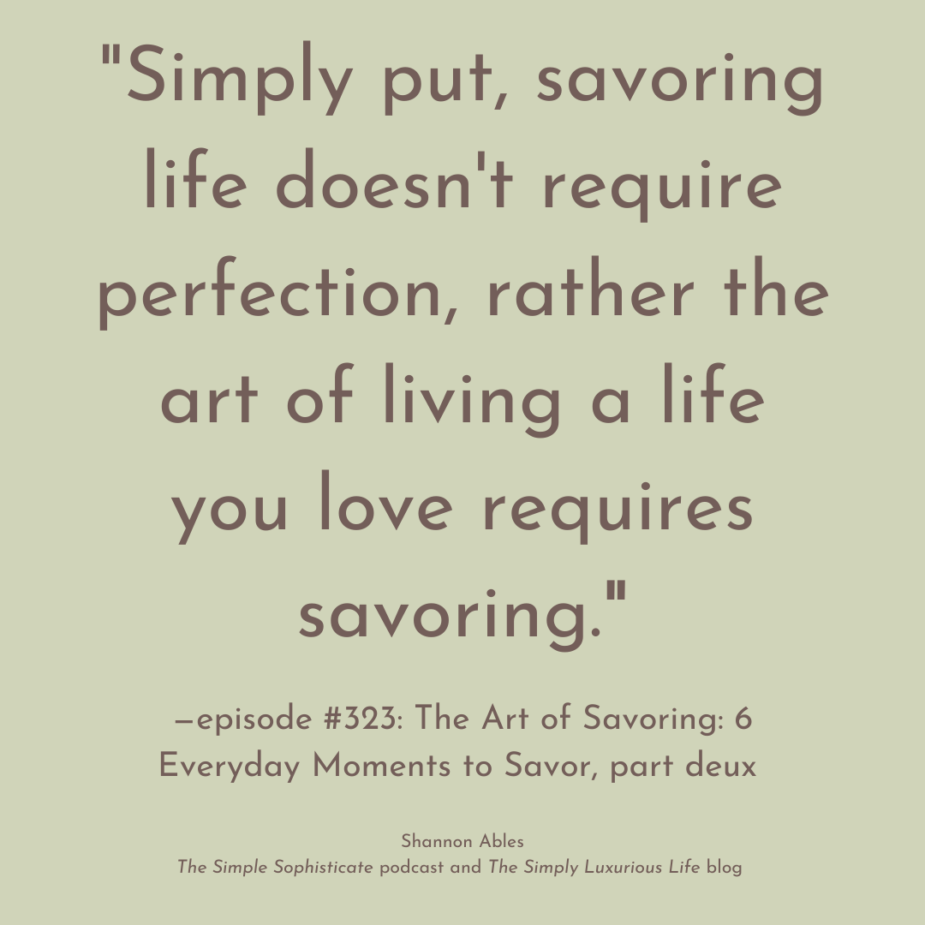 Let's take a look at ten moments in life to encourage you to savor by engaging in a Peak-Theory moment in which you linger a little longer after the much loved event/moment/experience in order to hold it in your memory and deepen your appreciation.
1.The moments as well as day after a long anticipated event - dinner party, celebration As shared above, whether you have just hosted a dinner party that went well, perhaps after a big event that required much coordination - a charity gala, a wedding, an anniversary party, a reunion, a birthday party, etc. - let yourself savor immediately after by doing whatever enables you to just take it all in again, reliving it, thinking about, letting yourself smile and doodle about, doing any task or no task at all that lets it all soak in even more. Take the next day, the next half day, whatever you need to let the awesome memories marinate so they won't soon be forgotten.
2. Upon seeing/reaching/holding in your hands the outcome you have longed worked so hard for Whether a work-related project or a personal goal being reached, once you have reached your mark - holding the published book in your hands, shaking hands with your new boss on the new job you just landed, finishing the home project you planned and saved for, arriving at the airport for the trip you saved up for - once you've reached where you've worked so hard to arrive, create a moment, hours, whatever time you need to drink in all that you have done to arrive where you long wished to be. Let yourself rewind and play back all that you overcame to be where you are so that you never forget and thus appreciate your arrival all the more.
3. Seasonal weather long missed - the first rain fall in weeks/months, the long anticipated snowfall, the break in the clouds after days of rain, clear skies after smokey, hazy, or foggy oppression Just yesterday, the snow finally came back to Bend. Even if for a few short hours, we have not seen snowfall in Bend since late December. I reveled in it. I stayed inside, let myself cozy in and just gazed outside and smiled, smiled and smiled a bit more. Mother Nature will bring what she brings, and each of us based our preferences and where we live have weather we most enjoy. When it has not happened in far too long, when it does arrive, let yourself savor.
4. Finishing a book that transported you, moved you, taught you something unexpected, deepened your understanding in a way you had never known before Upon finishing the book, reading the last word, last page, last chapter. You close it slowly, looking up at nothing in particular, and perhaps you smile as your thoughts seem to have been renewed and enlivened. Sit with this feeling of great expansion, and let yourself savor the gift you just gave yourself. You are changed, you are growing, you are living and that is an exciting place to find yourself and realize about yourself.
5. The first daffodil in the garden to bloom, the first of any perennial, tree blossom, favorite flower to return since the previous year Whether you sit outside and simply gaze in awe at the beauty that has revealed itself, let yourself delight in the awesomeness of Mother Nature. If the weather is warm, I will sit on my porch or somewhere nearby the bloom(s) and take more than a moment to be in that space with the natural beauty. Sometimes I read a book, sometimes I will sit with a cuppa, and sometimes I will just close my eyes and feel the fresh air kiss my skin. Savor such arrivals because they won't arrive in their first form such as this for another twelve months.
6. Stepping foot on the terra firma of a beloved destination, country, town, or home after a long absence Perhaps you know you will be traveling soon or have just returned from traveling to a place you have longed to visit or return to after a much delayed absence. If so, think about how you will or can savor how it feels to see this place with your own eyes, feel the air of that place, the energy of that place, so you can hold it with you in your memory when you do have to eventually leave again. Is it visiting a favorite haunt and just sitting, taking all the going-ons around you? Is it taking part in a certain activity that you can only do at this locale? Or maybe it is a favorite food or drink you enjoy. Whatever it may be, let yourself savor the good fortune to have been able to return.
Knowing how to savor and why it is important to do so not only strengthens our muscle of mindfulness as it involves the awareness of our mind and where we let it travel and where we hold our thoughts, it also shows us how awesome our one and only life is. When we pay attention to how certain moments that make us feel good in a natural way, we are honoring our most true selves. When we honor our true selves the quality of our days improves and thus the quality of our lives. The powerful truth of savoring is that it reminds us that whether the good moments in our lives are large or small, seemingly significant to the outside world or not seen at all, we become more in tune and aware as to how truly rich our lives are, and what we think we lack is actually far less than previously thought. In fact, we may have all that we need if we would only give ourselves permission to savor more regularly. The exciting truth is, everyday moments abound for us to savor if only we would have the courage to lose our inhibitions and revel in them and then hold them close so that we never forgot how great life truly is.
~Learn more about purchasing/pre-ordering a copy of TSLL's 3rd book - The Road to Le Papillon: Daily Meditations on True Contentment 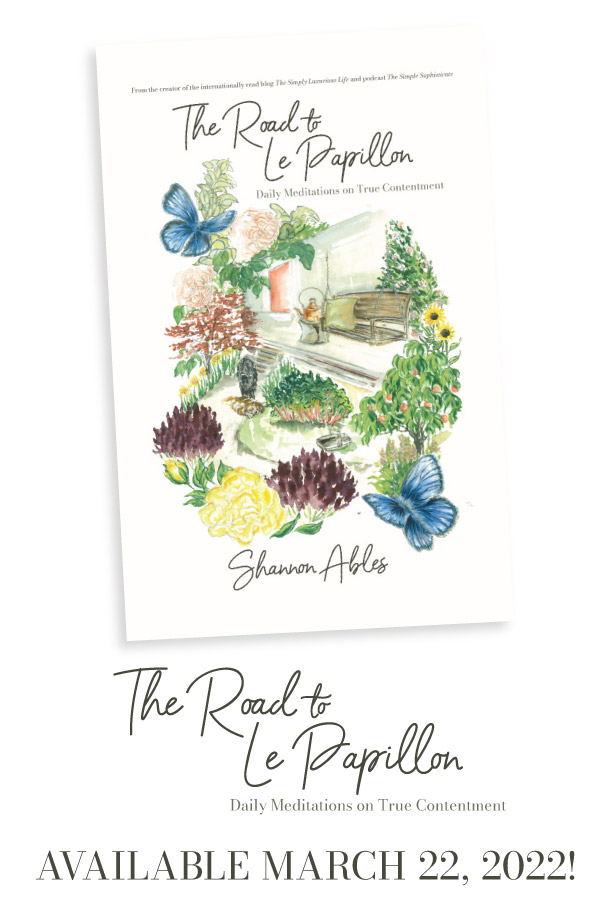
SIMILAR POSTS YOU MIGHT ENJOY
Petit Plaisir
Happy Yoga: Simple Tools and Practices for Everyday Calm and Strength by Hannah Barrett 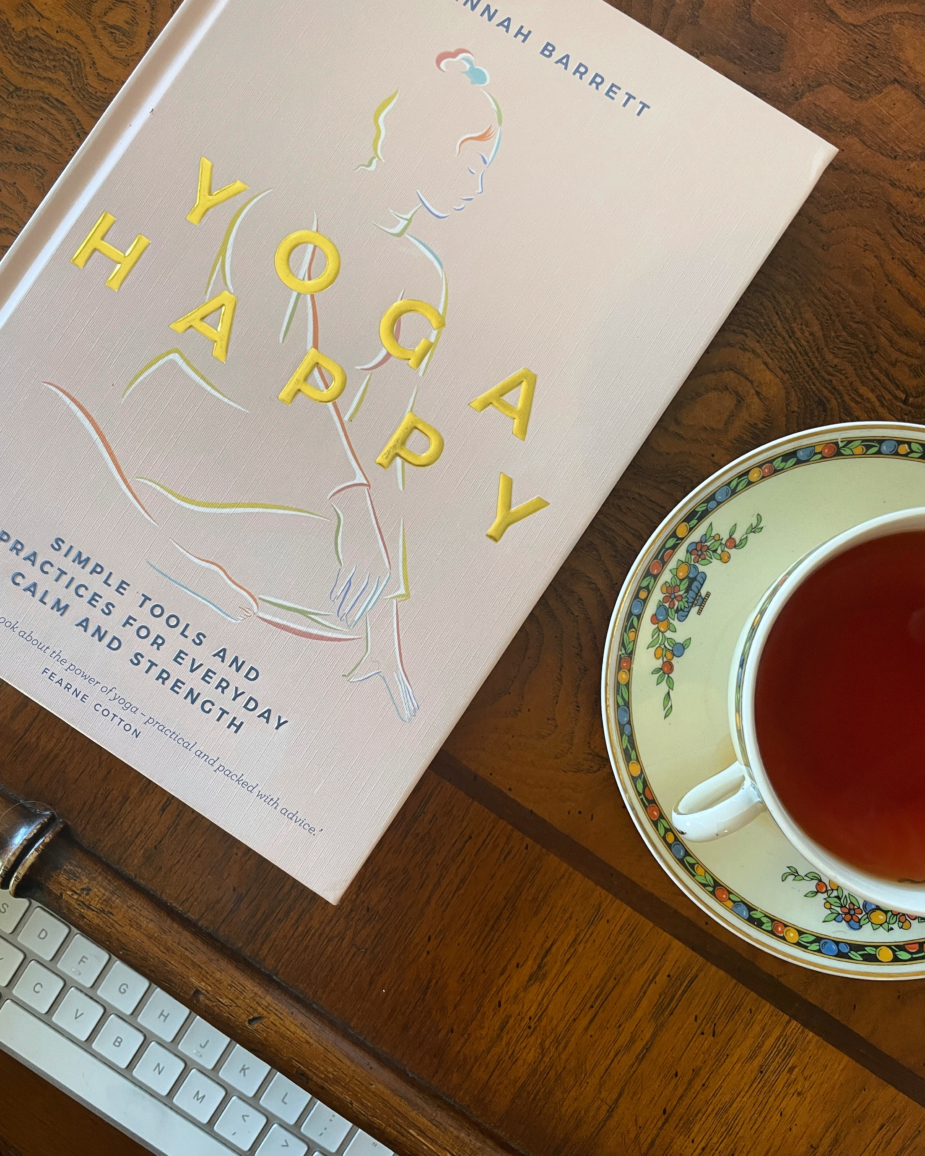
Murder In . . . (French mystery series) 
~The Simple Sophisticate, episode #323~Subscribe to The Simple Sophisticate: iTunes | Stitcher | iHeartRadio | YouTube | Spotify | Amazon Music |
Sun, 16 January 2022
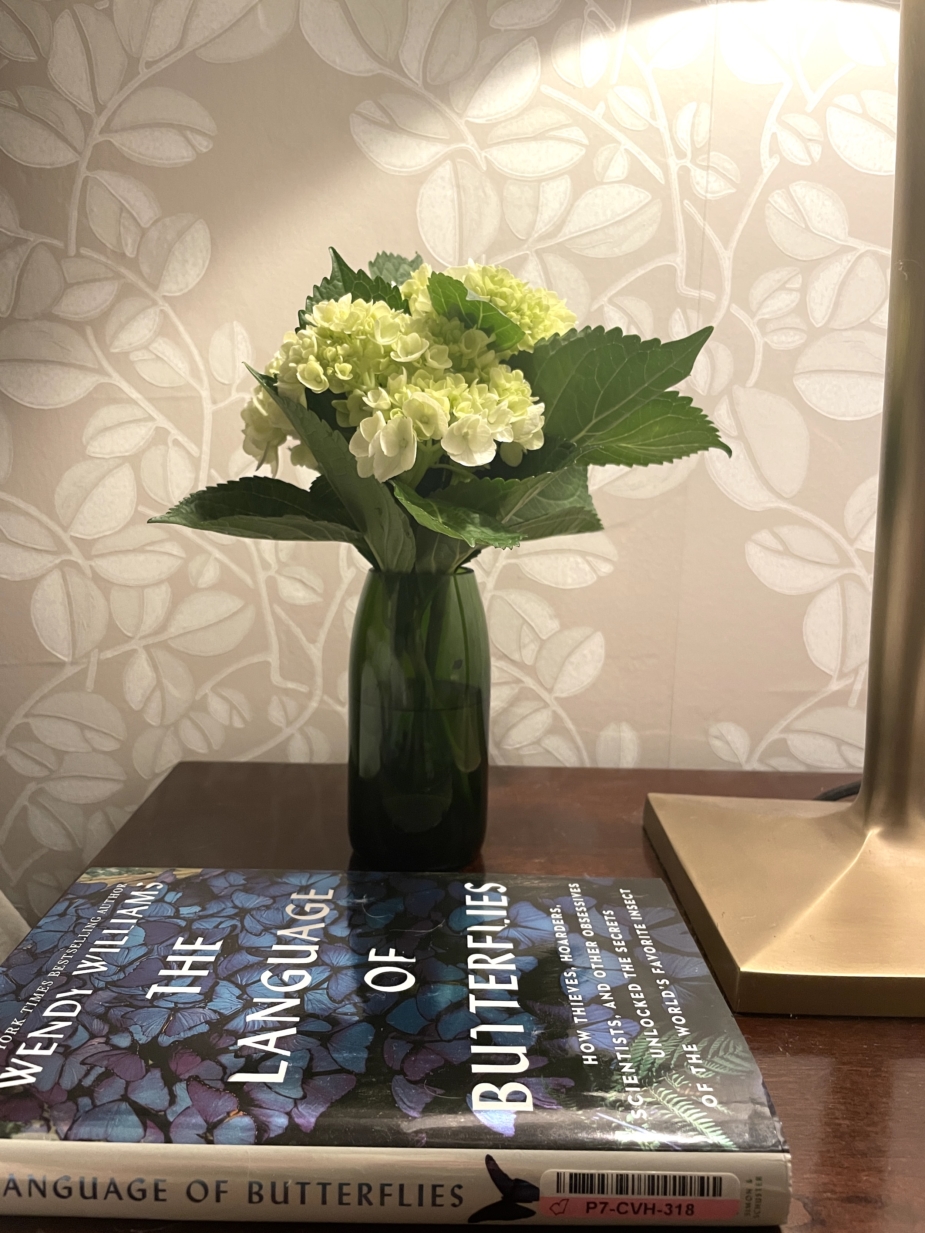 December has the ability to take us out of our daily and weekly rhythms. With all of the joviality and celebration, we often excitedly step into the change and welcome the shift of energy and focus. Similarly, when we have chosen a temporary project to focus our attention, our life routine, where we place our energies, what is prioritized and how we go about our days voluntarily changes. However, what we realize, is the routine preceding December or the commencement of the project, if we intentionally cultivated it, was created for a helpful reason. As shared in episode #316, our lives need 'white space' as that is where we breathe, think, settle, found the ground and our balance before moving forward well into whatever is in front of us. To look at it another way, why is beautiful music so beautiful? Claude Debussy explains, 'Music is the space between the notes.' When our lives become too full, too jammed with demands, even if they lead us to supposed exciting results, our beings suffer, our peace of mind suffers and we ultimately end up exhausted gasping for space to catch our breath, unable to connect well or fully in a way that would actually foster the life we love living. Inspired by my own life at the moment, the week ahead is my first week stepping back into the weekly and daily routines I have longed desired to be a part of my everyday life. The contractors are done. I have one job to hold my focus during the workday hours and I have five days in front of me to reset. Resetting does not necessarily mean returning to what was. After all, the project has concluded bringing a result not previously part of your life, and if you are resetting after the winter holidays, you no doubt experienced either connections, conversations, or moments that deepened, awoken or informed you about something unknown prior to the month of December. You have the opportunity to apply what you are now aware of and enhance your way of dancing with your days and weeks. How to reset constructively:1. Let the rest and recovery happenYour body is likely more tired than you realize as you have been traveling at a different pace and it has been carrying you with adrenaline to push through; however, this is not sustainable for clear thinking or engaging. Often you know you need to give yourself excessive rest when you fall asleep far earlier than you ever would (7pm on the sofa - zonked out). Your body is trying to speak to you. This is not a bad habit because it is not a habit. It is a need, and when the body is fully rested, you will be able to return to your regular 7-9 hours of sleep, turning in at your usual time and waking up to begin your day well. However, in the meantime, honor what your body is asking for. 2. Reflect on your previous routine pre-project/holidaysWhat I have done and did do this past weekend was pull out my old journals as I keep a list of my daily schedules as they evolved over time. I read them closely to understand how and why I chose them, and even though you may think you will remember, often, it is the details of the day that make it harmonize with what you need, so read and look closely. Bring back what you missed, ignore what was a headache, and then read #3 . . . 3. DecompressNow is the time to just put down on paper in a journal or talk with a counselor what you are relieved about, anxious about, hopeful about, excited about, etc.. Often we think by 'thinking about' each of these items in our head, we've helped ourselves out, but actually, they remain jumbled in our mind and we haven't sorted out the 'why' clearly or rationally. When we see our thoughts on paper, when we hear our words spoken outloud and being received by another person who is objective, we can ascertain where we are being constructive in our thinking and where we are still stuck in the stress or jazzed-up, adrenaline fueled energy (that is unsustainable) caused by the project or holiday season. Before we make any changes, additions or deletions, we want to make sure our mind is grounded, and our clarity of what we want our daily and weekly routine to foster understood without confusion by the previous temporary shifting of how we were going about our lives. 4. Don't do anything drasticOften January turns into the month of extreme restriction - dry January or excessive working out. Essentially, reverting to extremes that are never intended to be a regular rhythm keeps us in a state of instability. No wonder we get out of rhythm easily and have difficulty shifting to a helpful pace if we swing from one extreme to the next. When we have a steady, grounding daily and weekly routine, we can savor those extras, those beautiful surprises, those moments that exceed our imaginations whenever they arise whether in January, December or anywhere in between for whatever reason. 5.Strengthen the foundation - food, exercise and mental massageThe tripod of health is something long talked about here on the blog. Make sure your three pillars of good health are tended to and brought back into rhythm in your routines - (1) what you eat, (2) your consistent physical exercise routine (aerobic, strength) and (3) regular strengthening of your mind. In my case, my weekly grocery shopping became irregular as I usually shop on Mondays after reading through cookbooks and planning the week on Sundays. I look forward to returning to this weekly routine as the markets are quieter, often restocked after the weekend and the week becomes fresh and full of delicious meals waiting to be enjoyed. My exercise thankfully does not need to be revamped as that was the self-care component that kept me steady throughout the regular changes and arrivals and tasks in the house happening - each week different than the next. The one thing the contractors did know was that Shannon would be out of the house in the morning with Norman taking a walk and would be back to answer questions momentarily. My meditation and mindfulness practice wasn't perfectly steady, but it was inconsistently steady. So while I need to improve it, it will be easier to reset as I have been returning to it as often as my days allowed and always, without fail, felt steadier after each morning practice.
 31 Ways to Practice True Self-Care, episode #242 6. Find space and time for your social connectionsBegin to look outside of your work schedule, if the project that was all consuming was work-related, and connect with people and events simply because you enjoy their company and/or the activities you were not able to make time for. While truthfully, we should not extricate time with either as it reveals we have taken them a bit too much for granted, spend time and energy to acknowledge this awareness and step back or toward what you know is vital to your connection for social engagement. From carving out time for visiting a local bookshop with no intended purchase in mind, meeting a friend for drinks, taking in a local theater production, taking a day-trip with a loved one somewhere that catches the curiosity for you both, make time and share time together. 7. Finding Your Financial FootingAfter the holidays, often our budgets take a hit, and after a project we've invested in, the same too may be the case. It may seem the best idea is to go to extremes, and really ratchet down your spending, but often this is counter-intuitive, similar to drastic dieting. The best idea is to set a plan for, yes, reduction of spending, but also for paying off what needs your financial attention. Take the long-term, intentional approach, to slow your speed and find a rhythm with money that will last not just through January, but ensure you don't ratchet up the excessive spending or investment again next December or when it comes to projects, keep in perspective your appreciation for what you have put your money into and not rush to the next project just to keep your 'mind' busy. If you do want to do a hard, but not excessive reset, simply take one full week off in January from spending anything. This will give you time to assess, find your footing and clarify any decisions moving forward.
8. Begin to think less about the future and more about todayInitially this may seem counter-intuitive, but likely as the year began you set either resolutions or revolutions or at least an intention for the year. I have included a post below full of ideas for creating a fresh start. Once you have approximately 3 (but no more than 5) specific outcomes you wish you attain over the year, clarify the behavior, activities and small steps you need to tend to in your everydays. Then, let go of thinking about the future, and focus on how you move through your days. If your intention is to learn specific skills on becoming a better master of your mind, or a better communicator or more loving, explore this list of books and instead of seeing them as a huge task to conquer, purchase one book and move through it in your own time, in your own everydays, without evening thinking about what will be next. You know where to look when you are ready to for the next book should you want to read it, but for now, focus on what you are doing now. In other words, when you were immersed in the project, you were likely thinking about the outcome more than you wanted to, which pulled you away from your everyday focus, savoring the life you have the good fortune to live, investing well in certain relationships because you were all-in on the project. However, that needs to change, and the change needs to bring us back into the present. Trusting we've put into place the small tasks to tend to that will lead us where we desire to arrive, but along the way, keep us open to the beauty of the everyday.
9. Now, let goWhen we are so hyper focused on one aspect of life - the holidays or a project we hope will change our lives for the better, we have planned, we have looked ahead, and we then are often so laser focused, but we often forget to just be, to just let go, to fully see what is presented by the people we happen to meet, the events as they happen to occur, the weather that dances around the days we try to structure so rigidly. Let go, immerse yourself in the life you love living, savoring the simple pleasures along the way, listening well and sharing yourself fully, and see what happens. January need not be the extreme month of deprivation or punishment it often becomes, but rather a month to reset, to take a deep cleansing breath and settle into a rhythm that elevates our everydays, setting precedent for how we will move through the entire year that awaits our travel forward.
The Extra Item for the Blog Reader (not heard on the episode) 10. Have patience and be gentle with yourselfOften, especially after a jarring life event (if unwanted), all we want is to get back to steady, to get back to calm, and even if we love the outcome of the holidays or the project we have just wrapped up, we want to be able to snap our fingers and be back into our regular rolling through the day, but more time is needed. It takes time to acclimate to any new or new-as-of-late routine or rhythm, and when we understand this, we can be gentle with ourselves. This is why, bringing back more self-care than you may normally do on a regular basis would be a good idea. Take an extra bath this week, be okay, spend more time meditating than you may normally do on a regular day, take on less work if you can manage that, just so you get your sea-legs back. The rhythm you are resetting your life to follow will return but instead of demanding it arrive and becoming frustrated when you don't feel settled as quickly as you had hoped, know that its slow arrival will ensure it stays in your days for a good long while. Now I am off to take a bubble bath and settle into my evening. Bonsoir. ~Explore becoming a TOP Tier Member here.
Petit Plaisir
 ~Skincare - The Mighty Patch
The Traditional Marseille Soaps
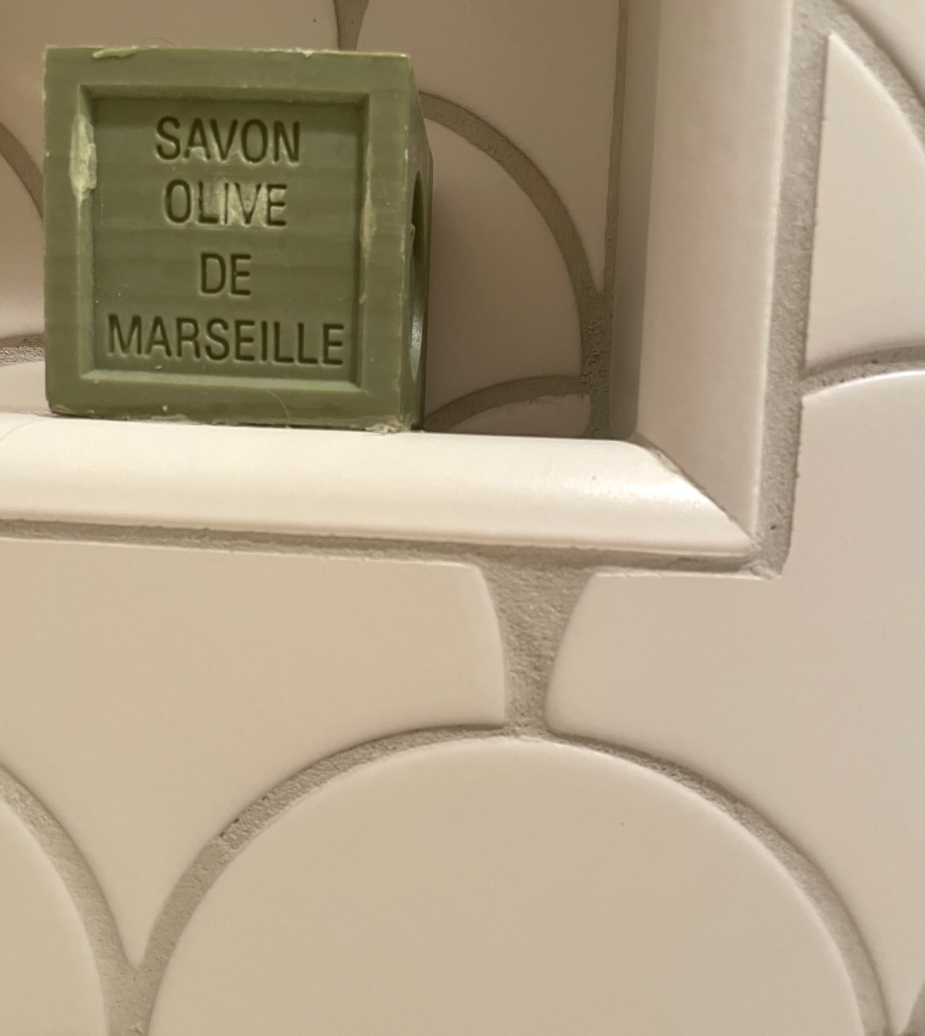 ~View more Petit Plaisirs here. ~The Simple Sophisticate, episode #321~Subscribe to The Simple Sophisticate: iTunes | Stitcher | iHeartRadio | YouTube | Spotify | Amazon Music |
Sun, 2 January 2022
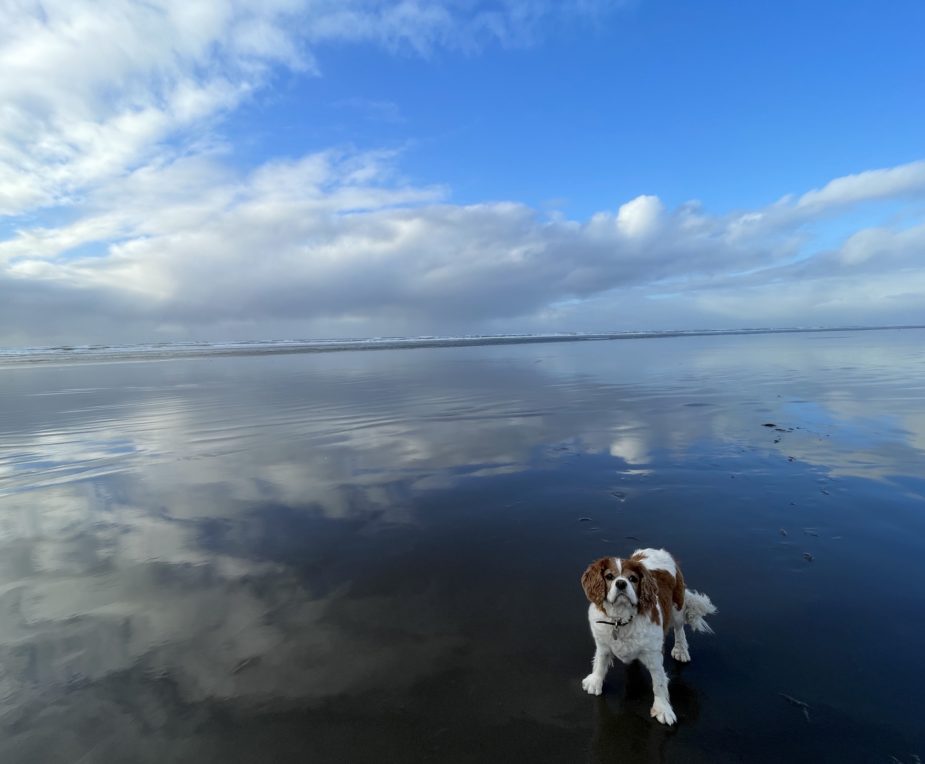
“You were brave and it paid off.” I am starting with where you will be at the end of 2022 because it is absolutely possible. Yes, it is. Let me first acknowledge where you might find your mind when you first read the title of today's post/episode followed by the quote. Doubtful, skeptical, it is wishful and empty thinking you present Shannon. Okay, I hear you, I acknowledge those same feelings arose in my own mind when such a question - What If . . . ? and just that quote regarding being brave first crossed my path. After all, we all have reason to be terrified after the past two years due to everything that has unfolded, what has been revealed, what we have had to do to make it through. We all have beyond justifiable reason to play it safe, to hold on to what is left (or what we think is left), to be scared, to be doubtful, but I am choosing to look at it differently, and this will come as no surprise to readers of the blog and this podcast as the content shared on TSLL especially over the past two years, but over the entire life of the blog (12 years) has defaulted to possibilities becoming reality. More than any time previously, collectively speaking, the world has witnessed both the privilege and the disparity, the unexpected and never predicted as well as the power of people. We can utilize what we have witnessed and elevate not only the lives of those around us, but our own life or we can ignore it and continue to just get along. I choose the former and I am confident you will as well. In the Broadway play If/Then with Idina Menzel cast in the lead role, a play I had the good fortune to watch in 2014 - my first ever to see with my own eyes in NYC - the idea is presented regarding what happens when two different paths are chosen by the same person. How does one's life unfold? Will we end up in the same place years removed or will we give up opportunity? Does fate play a role or not? From romance to career, to friendships, (there is even a song titled, What If? - listen to here or below), both storylines play out before theater-goers' eyes, and what is witnessed is that our choices do matter, our bravery matters; however, in both storylines, we cannot control the other pieces of the story - the other people, the world events, the interactions and storylines of other people and what they are going through in their own lives. But we can dare to love, dare to step forward into the unknown, dare to try, dare to be fully human and be kind and curious because when we choose this approach, we let love into our lives in both hoped for and unexpected ways, we create memories we never want to forget and we build relationships and legacies we are proud to have taken part in with our whole heart.
Below I have gathered up potential hoped for and desired scenarios you may hold in your heart as you stride into 2022 as Norman is striding onto the beach in the picture below. Paired with each I have included what each of us will need to do in our lives to ensure the best possibility for our hope to materialize. In other words, we cannot sit, cross our fingers and be passive. No, we must act, we must take part, we must engage and do so in constructive and secure ways to give the opportunity the best enticement to unfold before our very eyes. Let's take a look at the list below.
 What If . . . your health flourished?
What If . . . you met and built a healthy, loving relationship with someone?
What If . . . the world changed in a way that opened up unexpected possibilities in which your skill-set soars?
What If . . . you found a steady peace of mind in your everydays?
What If . . . you fell in love with the work you do or began doing work you love?
Our lives are unfolding as we read this post. And the gift to each of us is that we are here, alive and capable of being the main character in our story if we choose to engage fully. By choosing to engage with loving-kindness and integrity in each of our actions, we build a force of energy full of peace of mind as we know while we have been true to ourselves we have also considered those we love and what selflessly is what will honor their journey as well. We don't ignore ourselves, but rather respect ourselves. We are loving in the thoughts we let about in our mind which further strengthens our peace of mind and how we 'see' the world, we are loving in our actions, we are loving with our words. But rest assured, being loving doesn't mean being weak or soft or a push-over, but it does require us to allow others to be who they are even when it doesn't make sense to us, even if it is different than how we would live our lives. Loving asks us to extend appreciation, sincerely and often which means we must look for what is going well all the time which makes it far more difficult to look for what is not going well, thus limiting or eliminating any reason to complain. Loving asks us to be affectionate, to be vulnerable and not withhold giving love to others - a touch of the arm, a hug, a kiss, a kind word. So won't you too step forward and dare to elevate the potential of what this year can bring into your life and those you love? Living in the mindset of "What If . . . ?" is not to hold on to hope. In the context of what we are talking about today, it is a taking responsibility of our actions, how we present ourselves - the thoughts that turn into words, the words we use, the tone surrounding those words, the actions we take rather than being passive, what we step toward and engage with and what we let go and let be.
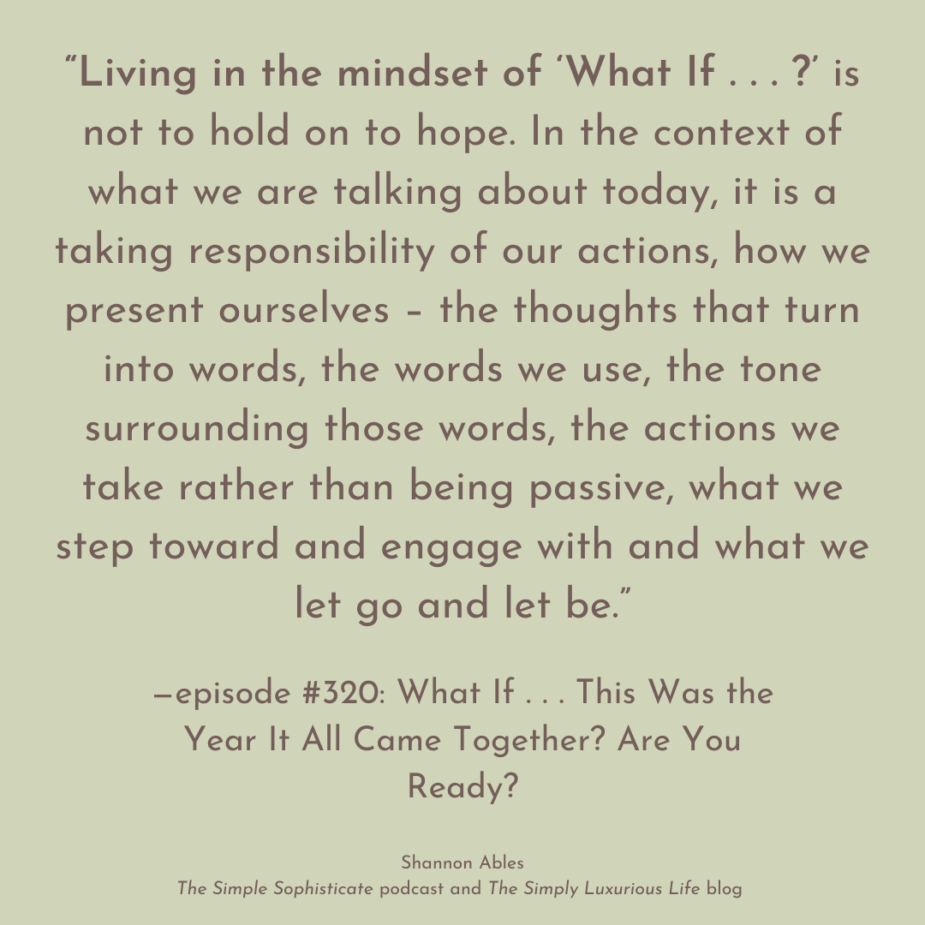 Living in the mindset of 'What If . . .?" removes us from the director's chair and puts us on the stage of life to engage with what is presented by others on the stage with us at any given moment. Living in the mindset of 'What If . . . ?' requires us to live in awareness and to take action where we acknowledge we need to grow, where we are hindered by our current choices/actions/thoughts the life we desire from materializing. It requires us to handle our egos with command of understanding when it is unhelpful and guiding us down a path that will not be fortuitous, and also knowing when it can help us, but never letting it lead.
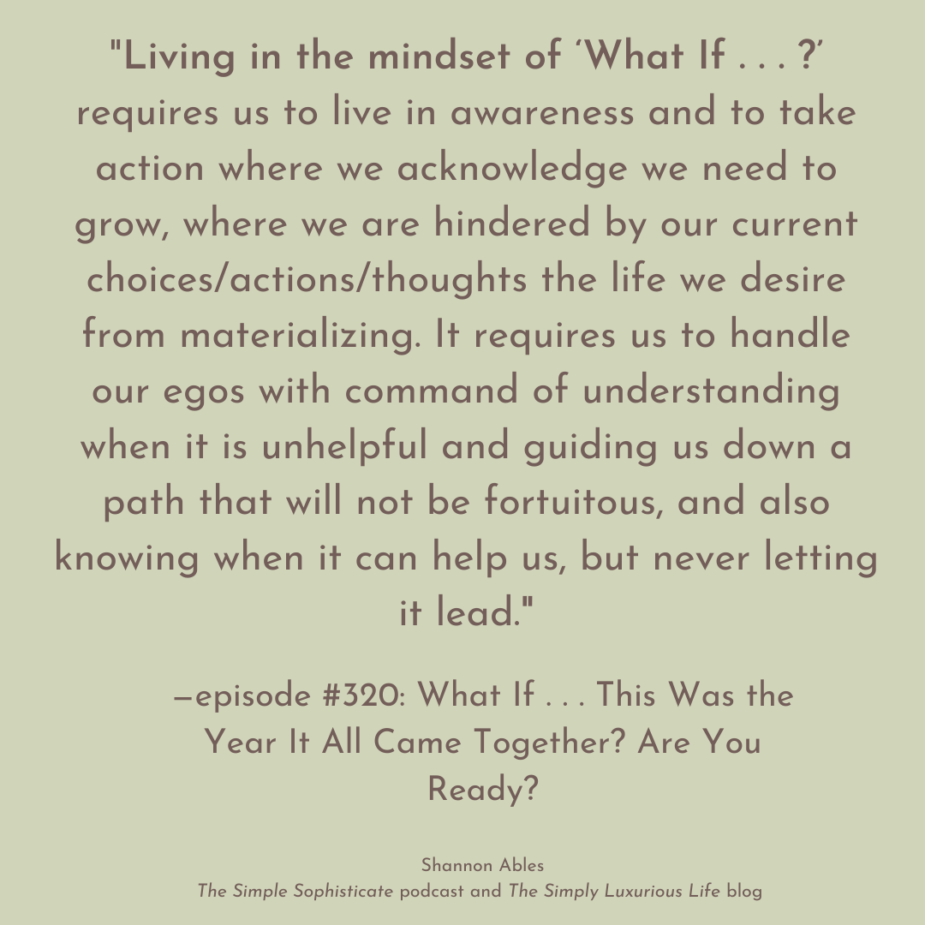 Living in the mindset of 'What If . . . ?' reiterates the importance of putting in the time. Time when we are not recognized, not out in front of the crowd, not receiving attention, but instead trusting ourselves to invest with both our time, our money, our focus to create the possibility of a new reality. May 2022 delight and amaze you, and may you find the courage to be brave. Here we go!
SIMILAR POSTS/EPISODES YOU MIGHT ENJOY
 episode #214: Attaining the Change You Seek in the New Year
Petit Plaisir ~Hacks, HBO Max
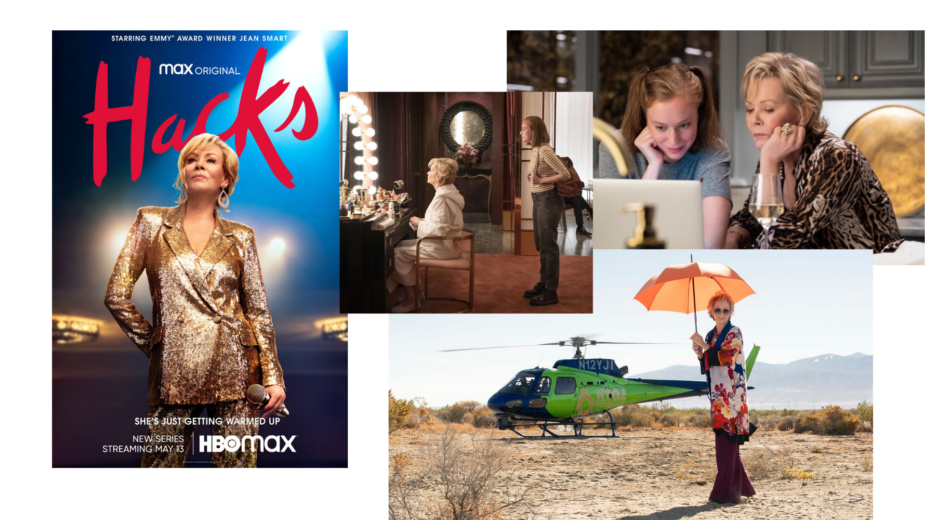 —SKIMS Cozy Bouclé Robe (bone, and more colors)
 ~The Simple Sophisticate, episode #320~Subscribe to The Simple Sophisticate: iTunes | Stitcher | iHeartRadio | YouTube | Spotify | Amazon Music |
Sun, 14 November 2021
"Vitality involves intersection with and participation in the world around you. It is not predicated on taking a year off to find yourself. It doesn't require making a drastic change. You don't need to lose yourself in self-reflection. You don't need to overhaul your existence, or reinvent your life, or wait until the chaos [subsides]." —Dr. Samantha Boardman, author of Everyday Vitality What is Vitality?Vitality elevates the quality of each day, and it is something you cultivate with your actions, engagements and approach to living. "Health of spirit" is an oft definition of vitality, a "sense of feeling psychologically and physically up to the task". Most directly, "Vitality—the positive feeling of aliveness and energy that lies at the core of well-being."
It is important to note what writer and psychologist Andrew Solomon shares. "The opposite of depression is not happiness, but vitality." Picking up Dr. Samantha Boardman's book Everyday Vitality: Turning Stress into Strength initially gave me pause. First of all, based on previous readings and research and my own experience, we shouldn't be managing stress, we should be assessing and eliminating it at the source when and where possible. So it was her subtitle that almost had me backing away from reading the book. However, as soon as I read the introduction it was clear, much of the stress that is in our lives is self-made and thus can be reduced and/or eliminated. Her book is full of specific approaches, backed by research and multiple studies to demonstrate the significant shift and beneficial shift our lives make when we approach our everydays - how we interact, that indeed we do interact with the outside world and how we hold ourselves as we navigate through our days - thoughtfully and intentionally. In other words, actively engaging rather than passively observing. Today I have ten approaches, tips and tools for improving the vitality in your everydays. There are far more than ten to be found in her book, so hopefully today's episode will be a nice taste of what you may want to explore more if you pick up her book. Visit the show notes - https://thesimplyluxuriouslife.com/podcast316 |
Sun, 17 October 2021
"The missing element of oxygen, when brought home, gives us time in which we can record the tiny, visceral, magnificent details of living. The shower after a sweaty workout, a belly laugh with a friend, the warmth of fine whiskey, rain on the roof, or a tight and lasting hug . . . Busy can make you miss it all. Busy keeps you paddling along the surface of the water instead of diving down to see the parrot fish and the fan coral." —Juliet Funt, author of A Minute to Think: Reclaim creativity, conquer busyness and do your best work A thinking life is a happy life. But if you don't give yourself regular time to think well, living well is near impossible. Inspired by my own aha moments most recently as work shifted temporarily to being at home during the pandemic restrictions for in-person work environments, but also throughout my life when I would notice my productivity rise and fall based on the rigidity of my schedule, I witnessed which approach blatantly not only produced the best productivity, but the most joy as well. They were not mutually exclusive.
In fact, each time I have had the opportunity to travel to France, I witness the daily routines of the French, the long lunches, the deliciously untempered dinners that stretch into nearly early morning, and I remind myself to value quality engagement over the quantity of doing more and fitting more into a day's work or even play schedule. A new book, A Minute to Think provides encouraging evidence predominantly from inside the corporate world of the benefit of shifting away from more and instead investing in less. Today I would like to share with you seven ideas to ponder when it comes to how to live a life, that includes work, but is not driven by work, but rather living a fulfilling life, that brings you deeper contentment, joy and satisfaction. ~The Simple Sophisticate, episode #314
|
Sun, 3 October 2021
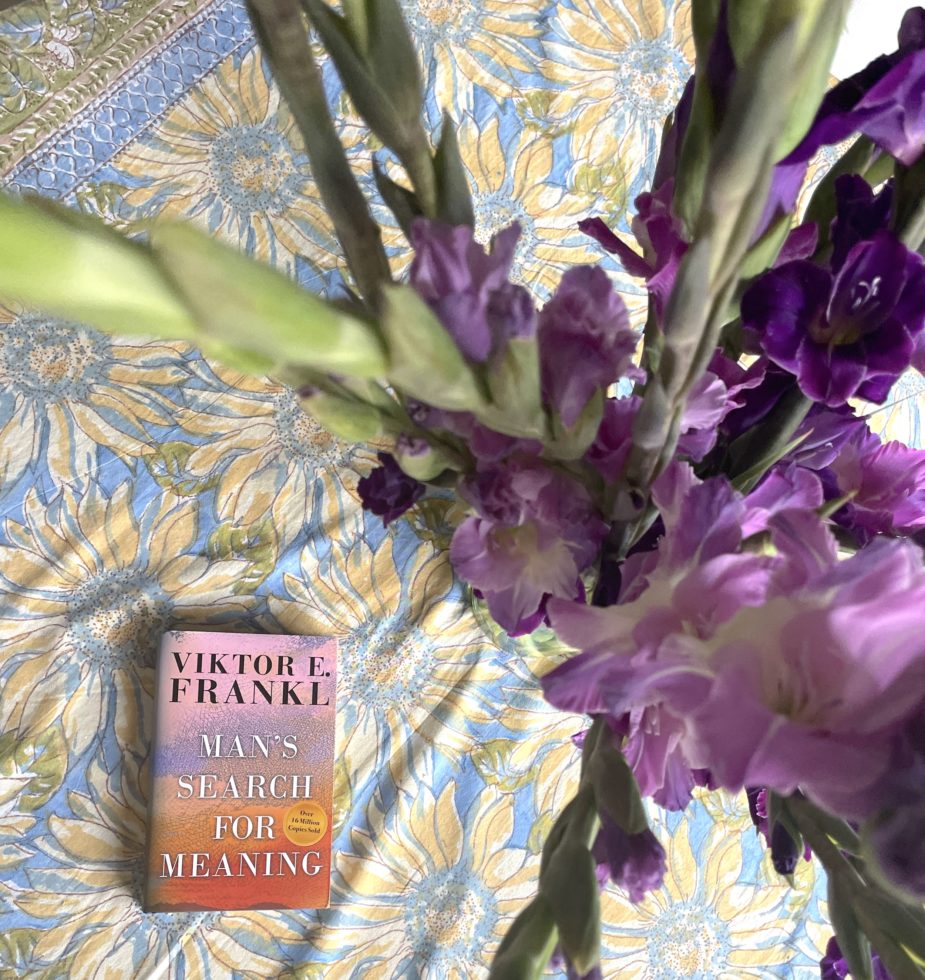 "Man's search for meaning is the primary motivation in his life and not a 'secondary rationalization' of instinctual drives. This meaning is unique and specific in that it must and can be fulfilled by him alone; only then does it achieve a significance which will satisfy his own will to meaning." —Viktor E. Frankl First published in Germany in 1946, Viktor Emil Frankl's seminal work Man's Search for Meaning and the desire to write his first book (to be titled The Doctor and the Soul: An Introduction to Logotherapy) that largely gave him the will to live while imprisoned at Auschwitz during WWII. Marrying psychology and philosophy, a primary focus of his work throughout his life, Frankl shares "Certainly, my deep desire to write this manuscript anew helped me to survive the rigors of the camps I was in." Now with more than 16 million copies sold worldwide, Man's Search for Meaning continues to be a book to read, understand and reread. While not having the opportunity to read it until now, I am grateful that at least I finally did read it, and I would like to share with you today nine lessons learned about the importance of finding meaning in our lives. Much of the premise of a simply luxurious life is centering our lives, our selves, or perhaps a better word is grounding ourselves in priorities that marry what we can uniquely give, but also what the world desperately needs to progress and cultivate a more civil, loving and peaceful place for not only ourselves, but future generations. At first, such a task given to each of us may sound ginormous and far too weighty a task, but when we drill down, ultimately, love, sincere love, being able to share our true selves and be accepted begins to create a harmony of contentment that cannot help but create a symphonic awareness grounded in a desire to live more peacefully and lovingly with each other. Too far reaching some may contest, but if my own life journey, which indeed is filled with good fortune and privilege beyond my choice or control, demonstrates, when we have not found our meaning, when we are discontent, building healthy relationships is incredibly difficult, and often fraught as while trying to make sense of our lack of purpose, we displace our pain, so I wholeheartedly find worthwhile value in exploring what Viktor Frankl teaches, and hope it will offer tools for you as well to tap into what gives you meaning and share it with not only the world but yourself so that your everydays may be full of contentment. Let's take a look at the nine lessons. 1.Choose to pursue the will to meaning Frankl defines the will to meaning as "the striving to find a concrete meaning in personal existence". For when we find our individual will to meaning, the healing begins. Existential frustration subsides, neuroses find solutions, anxieties wane and contentment soars.
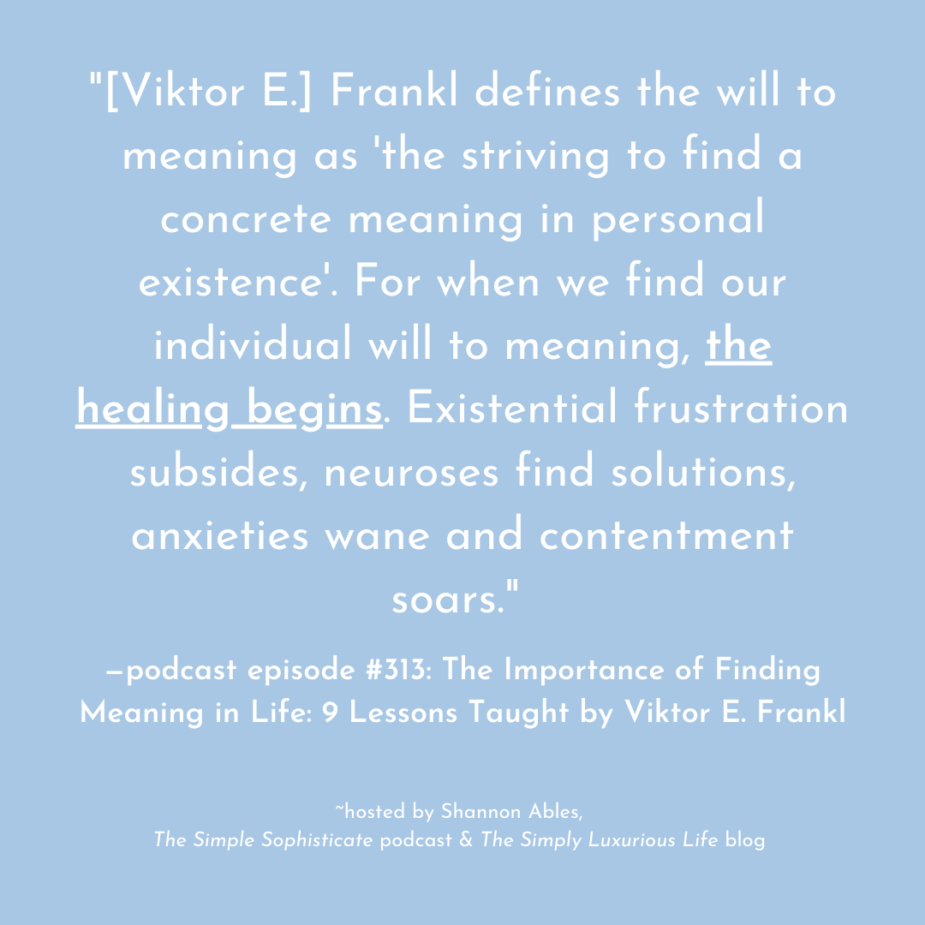 2. Find your meaning, find your way forward Frankl shares an anecdote of an American diplomat who came to his (Frankl's) in Vienna discontent with his current career. Following five unfruitful years with his former psychological analyst who claimed the discontent came from the need to reconcile himself with his father as the analyst made a parallel with the father and the U.S. being a superior figure, upon visiting Frankl, and following only a few visits, the patient realized with clarity that his "will to meaning was frustrated by his vocation, and he actually longed to be engaged in some other kind of work. As there was no reason for not giving up his profession and embarking on a different one, he did so, with most gratifying results." 3. Nothing is wrong with you if you feel existential distress; in fact, you are heading in the right direction Frankl points out, moreso for practicing therapists, to not equate existential distress with mental disease. Asserting, "it is [the task of the therapist], rather, to pilot the patient through [their] existential crises of growth and development." So often in my own life journey, the distress of frustration by my career, my relationships (or lack thereof), and what I was meant to do with my finite days on earth, felt as though it was a burden, not good fortune. Something was 'wrong' with me for not having figured out my life journey immediately, quickly and feeling at ease. Thankfully, the opposite is true, all was well. I was listening to myself, I was acknowledging something didn't 'fit', what I was giving, what I was spending my time doing either wasn't enough or it wasn't aligned with my talents and what the world potentially needed. In this post - 9 Ways to Think Like a Monk, as taught by Jay Shetty - Shetty's idea of Dharma is shared. Passion + Expertise + Usefulness = Dharma In many ways, finding our Dharma is to find our will to meaning. 4. The unexpected gift of tension "What man actually needs is not a tensionless state but rather the striving and struggling for a worthwhile goal, a freely chosen task. What he needs is not the discharge of tension at any cost but the call of a potential meaning waiting to be fulfilled by him." I chose to bold the phrase 'freely chosen' because I find it to be an essential element to finding true contentment. Even if your life is charmed, yet you still feel discontent and frustration, yet society applauds, your family applauds, your friends cheer for what you are doing with your life, most likely, you have unconsciously not chosen for yourself the life you are living, but rather have been steered by approval, expectation and mores to take the steps and make the choices you have without truly acknowledging what you long for. Which leads me to the next item on the list, but first . . . Welcoming tension in your life must be thoughtfully done. After all, unnecessary stress is harmful to our health. No, what Frankl means by stating tension is healthy has everything to do with pursuing what gives you meaning. If you derive meaning from advocating for a cause, then the path forward will undoubtedly be fraught as you are striving for progress, but you strive forward anyway because it is your will to meaning. If you derive meaning from raising a family, nurturing your children as to give them their own wings with which to fly, the journey together will be a mingle of emotions, but you strive forward because it is your will to meaning. If you derive meaning from contributing through your chosen career path to improve the lives of others, you navigate through the frustrations, setbacks and hurdles because it is your will to meaning and you know why you are pursuing it. When the path we are on does not fulfill our will to meaning, similar to the anecdote of the American diplomat mentioned above, then the tension becomes unhealthy. Then we must be frank with ourselves and find the courage to change course and bravely do so, not only for our own well being, but for those we love and the world at large. Why? Because the world needs what you uniquely have to give. Figure out what that is and then begin giving what you discover. Your tension will be reduced to a healthy amount and your contentment will soar. 5. Discover what you long for and find your contentment The term Logotherapy as defined by Viktor E. Frankl derives its meaning from the Greek root Logos which is defined as "meaning". Logotherapy "strives to find a meaning in one's life as the primary motivational force of man". Logotherapy opens itself up while including 'instinctual facts within the individual's unconscious [it] . . . also cares for existential realities, such as the potential meaning of his existence to be fulfilled as well as his will to meaning." In other words, Logotherapy assists the patient to become aware of "what he actually longs for in the depth of his being". Understanding the language of your true self can sometimes be difficult and take time especially if we have suppressed it for some time; however, we are each capable of learning our language when we choose to be a student of ourselves. As I share in my About page (I recently updated it to reflect more accurately and specifically what TSLL is all about, but the shared portion below remains the same as it did in 2009), while I valued and gave my all to teaching, in 2009 I finally acknowledged that something wasn't entirely being satiated by solely working in the classroom." (see the excerpt below)
When we find meaning, even if nobody else understands why such a path speaks to us and brings us to life, we have found the motivation of infinite energy, creativity, tenacity and strength. 6. Find your meaning, eradicate boredom Frankl coins the term 'Sunday neurosis" as "that kind of depression which afflicts people who become aware of the lack of content in their lives when the rush of the busy week is over and the void within themselves becomes manifest." He goes on while speaking about the existential vacuum to share that without the will of meaning, and with the improved automatization of our 21st century, "many will not know what to do with all of their newly acquired free time". Which is to say boredom, anxiety, distress and lack of direction cause more solvable problems that he argues can be largely solved when we find our will to meaning. This is not to say you have to be busy every moment, pack your schedule with appointments; in fact, I would argue, it is the opposite. Or perhaps, more accurately, it is a knowing what supports and nourishes your will to meaning and thereby finding comfort with your down-time that is a part of your self-care and confidently engaging in your productive time when on task. 7. Your next best step toward meaning is what is best for you "The meaning of life differs from [person] to [person], from day to day and from hour to hour. What matters, therefore, is not the meaning of life in general but rather the specific meaning of a person's life at a given moment." I found it helpful to note that Frankl directly advises not to search for an abstract meaning of life, but rather a concrete 'assignment which demands fulfillment'. In other words, don't commodify yourself, but rather what is it you bring that is helpful and that you find fulfillment in giving? "Thus, everyone's task is as unique as is his specific opportunity to implement it." 8. Finding strength during times of suffering "When we are no longer able to change a situation, we are challenged to change ourselves." Just as Frankl's own life exemplifies harnessing his will to meaning to survive the unthinkable tragedies and struggles during WWII, he writes, "In some way, suffering ceases to be suffering at the moment it finds a meaning, such as the meaning of a sacrifice." However, and this is crucially important to absorb, he continues on in the same section of the book to point out "But let me make it perfectly clear that in no way is suffering necessary to find meaning. I only insist that meaning is possible even in spite of suffering—provided, certainly, that the suffering is unavoidable." 9. Hold yourself in the present fully for all the days of your life Frankl writes that we must refrain from being pessimistic and instead be activistic when it comes to our human existence. That is to say, "The pessimist resembles a man who observes with fear and sadness that his wall calendar, from which he daily tears a sheet, grows thinner with each passing day. On the other hand, the person who attacks the problems of life actively is like a man who removes each successive leaf from his calendar and files it neatly and carefully away with its predecessors, after first having jotted down a few diary notes on the back. He can reflect with pride and joy on all the richness set down in these notes, on all the life he has already lived to the fullest." He goes on to suggest there is no need to envy the young because we have lived fully each of our days, holding ourselves in the present, motivated by our will to meaning, and "instead of possibilities . . . have realities [from our past experiences] . . . not only the reality of work done and of love loved, but of sufferings bravely suffered." Just as happiness cannot be experienced in every moment, suffering cannot be wholly avoided when we find our will to meaning and let it guide us forward. However, by holding ourselves in the present moment, while we cannot avoid experiencing the loss of loved ones, we can love fully, so that when we reflect, we are filled with joy and reminded of the riches of our lives, riches we, by bravely living well, engaging with our humanity, courageously stepping into what we discover is our will of meaning, helped to bring forth into our lives. Upon learning about Viktor E. Frankl's approach to therapy and perspective on the meaning of humans, I found an alignment that has unconsciously spoke to me to honor for decades. Although never making sense, and not having the opportunity, nor pursuing more intentionally philosophy courses in college, the ideas danced about in my mind, and while I, at the time, wanted them to leave me alone because they were so perplexing, they thankfully waited for me to make sense of them, to trust them. The world swirling around us via media, messaging, our community can be deafening and hold us off course if we let it. But when we understand that the feeling of frustration is actually a sign that we are hearing our inner voice, we can find peace. Because in that moment of aha, we can take a breath, and continue to pursue the questions that keep bouncing around in our mind, because, if my own journey is any indication it is a path that will lead you to everyday contentment. I do hope you enjoy this week's episode of the podcast. Thank you for stopping by and tuning in.
 Man's Search for Meaning by Viktor E. Frankl
SIMILAR POSTS/EPISODES YOU MIGHT ENJOY:
Petit Plaisirs
 —Ted Lasso, Apple TV+ (click here to learn more about the recommendation, watch the trailers of both seasons and the original ad which began the idea for the show)
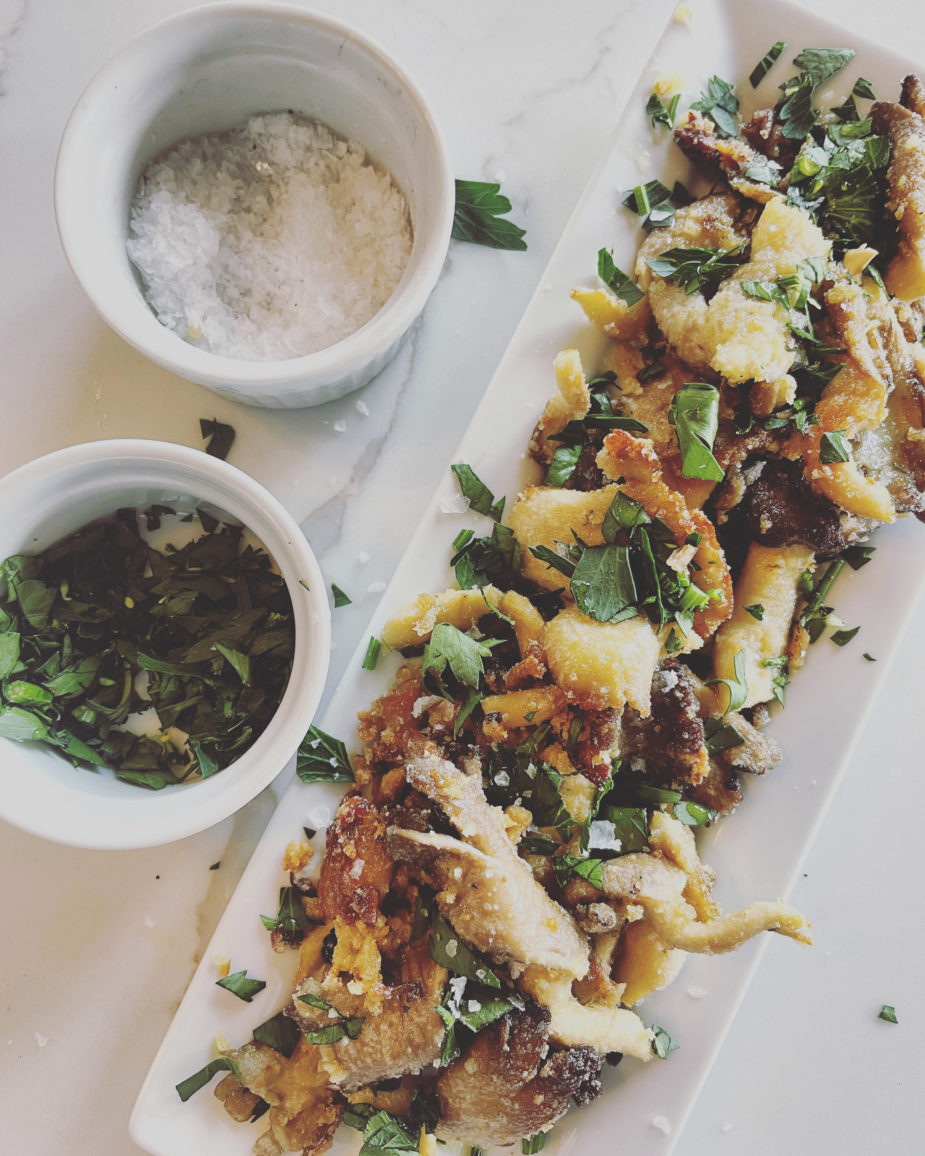 —Sautéed Oyster Mushroom Appetizer (view the recipe here) View more Petit Plaisirs here. ~The Simple Sophisticate, episode #313~Subscribe to The Simple Sophisticate: iTunes | Stitcher | iHeartRadio | YouTube | Spotify | Amazon Music |
Sun, 19 September 2021
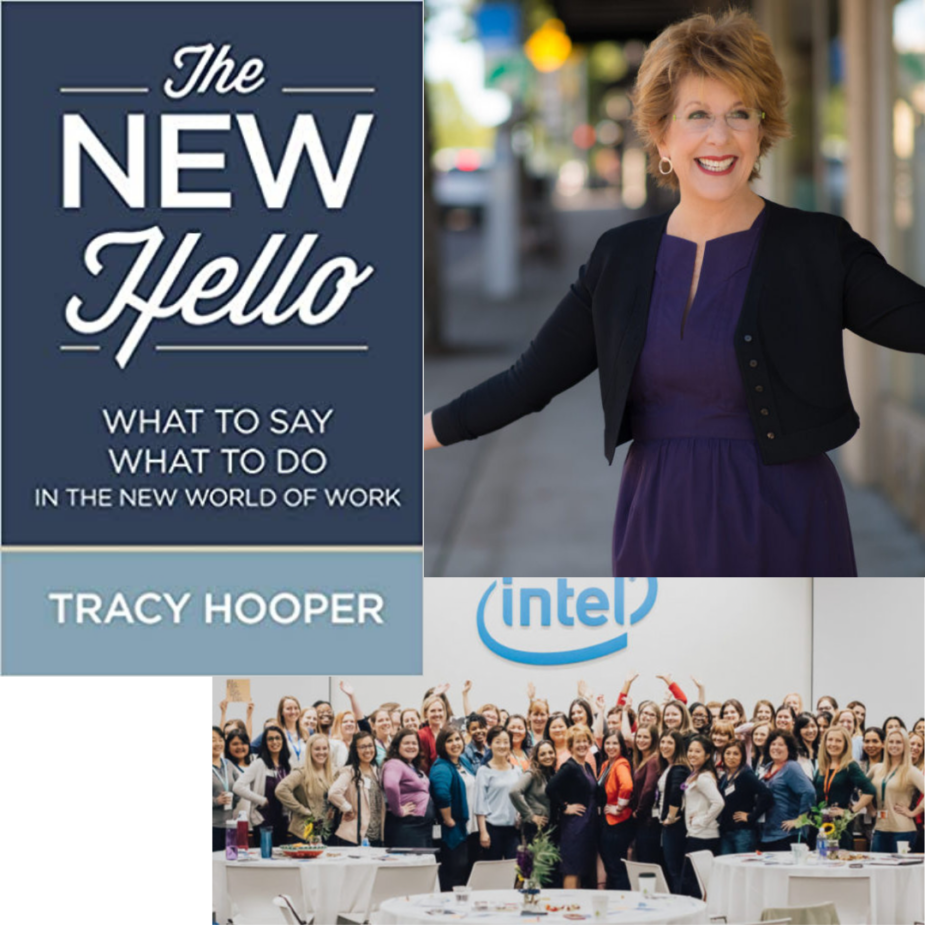 The workplace has shifted in a short amount of time, largely due to the pandemic, but also prompted by many other social and environmental awakenings. Communication, civil communication, remains at the epicenter of a civil society; however, currently, a significant learning curve has taken place, and we need to keep up in order to strengthen connections, build trust and foster workspaces of inclusion. My guest on today's podcast, Tracy Hooper, the founder of The Confidence Project, released a new book The New Hello: What to Say, What to Do, in the New World of Work this past year to share with us all the how and the why to practicing and learning the skills of clear communication paired with acute awareness of others to create a workplace of mutual, positive benefit and exchange. Having known Ms. Hooper for ten years (she was a guest on the show during its first season), we had a wonderful video chat for today's episode (audio only). Listeners will learn specific examples of skills to utilize not only in their work life, but their personal life as well to strengthen relationships and honor our own boundaries and voice. Items of Discussion in today's episode:
I highly recommend The New Hello for not only our current times, but all times, as Tracy shares years of research and experience with a vast variety of workers and individuals, teaching the importance of self-awareness (how we speak - the words we use and what is conveyed, whether we intentional or by default; as well as our body language) and awareness of our surroundings and those we work with ensuring all parties feel comfortable, welcome and heard.
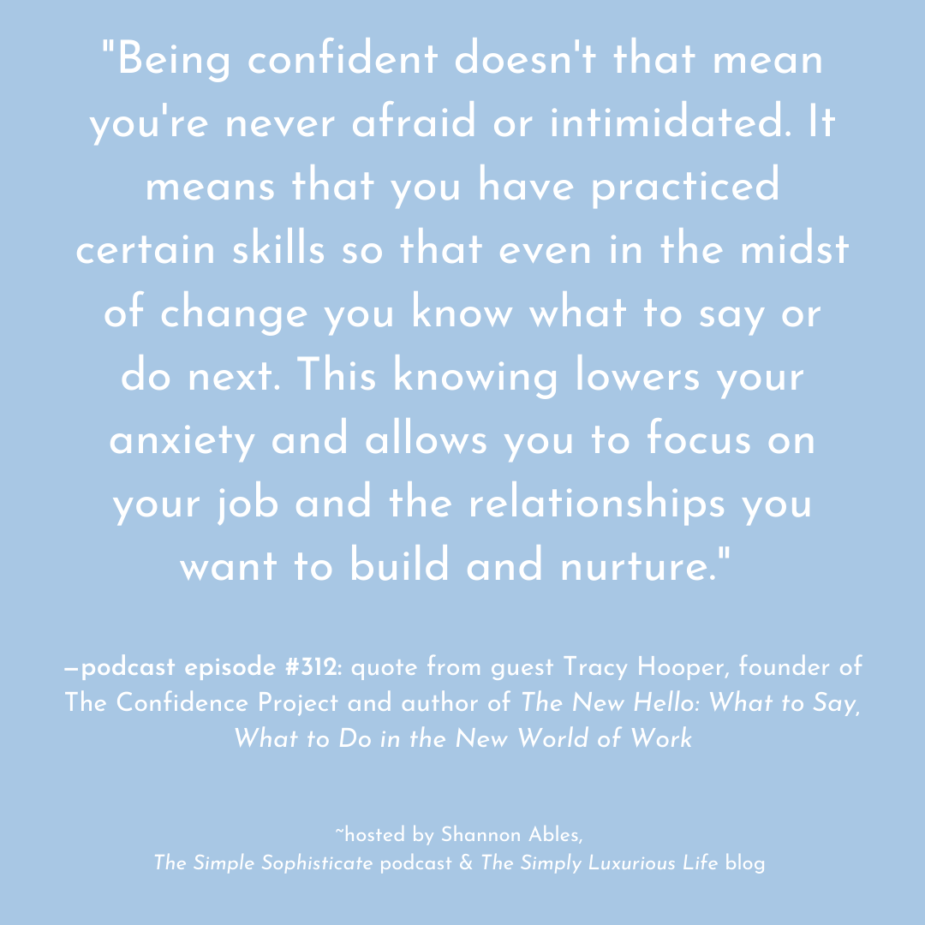 Links to explore:
 Confidence: How to Gain It & Why It's Invaluable, episode #5
 Learn more about The New Hello (available in paperback and audio) ~I greatly appreciate what Tracy shares in this IG video (below) about standards and respecting the ones we have for ourselves whether in business or in our personal lives
Petit Plaisir As well, Tracy shares this episode's Petit Plaisir, a priceless example, something each of us can incorporate into our daily lives, to deepen our contentment, calm our minds and settle our being. Shared below, Tracy's zinnias surround her outdoor space at home to sit, relax and slow down during the summer months.
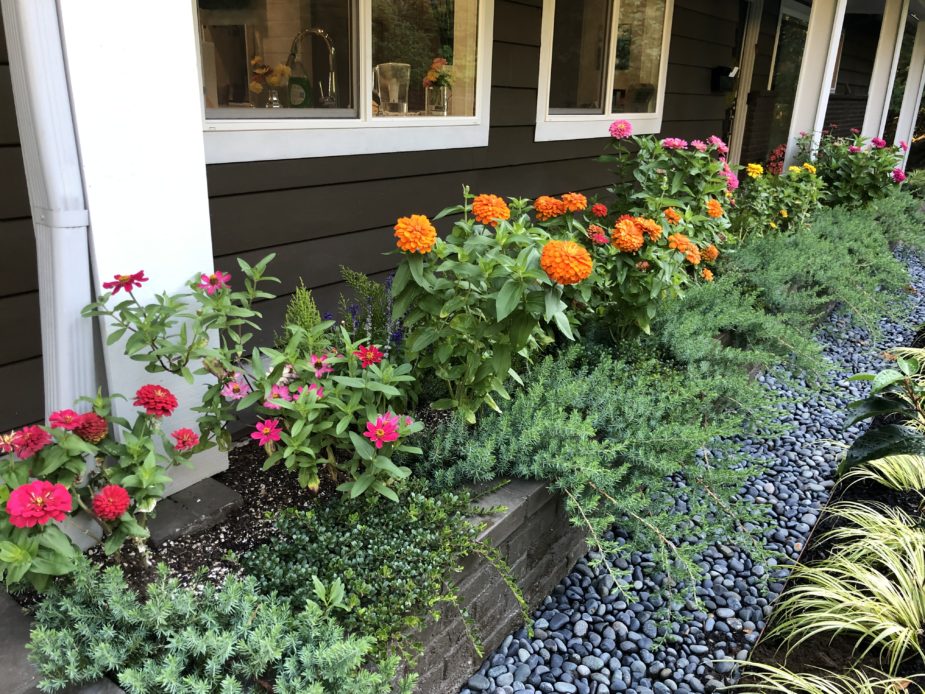
 . View more Petit Plaisirs here. ~The Simple Sophisticate, episode #312~Subscribe to The Simple Sophisticate: iTunes | Stitcher | iHeartRadio | YouTube | Spotify | Amazon Music |
Sun, 5 September 2021
"The world is already broken. And what's true of the state of civilization is equally true of your life: it was always already the case that you would never experience a life of perfect accomplishment or security. And your four thousand weeks have always been running out. It's a revelation, though: when you begin to internalize all this even just a bit, the result is not despair, but an energizing surge of motivation . . . You realize that you never really needed the feeling of complete security you'd previously felt so desperate to attain. This is liberation." —Oliver Burkeman, author of Four Thousand Weeks: Time management for mortals Admittedly, the length of a human life is short when we take the long view of civilization, so it is understandable for us to make the most of our time. However, in so doing, we often go about 'making the most of it' in unhelpful, counter-intuitive ways. Oliver Burkeman wrote a long-running and award-winning weekly column for The Guardian up until last year. He is also the author of The Antidote: Happiness for People Who Can't Stand Positive Thinking, and so after reading his final column for The Guardian, and the synopsis for his first book, I had an idea of his frank, yet considered and sincere approach to what he shares with his readers. Four Thousand Weeks is not your typical time management book. Thank goodness. It is a book to open our eyes to the reality of our mortality, no matter how much we may profess we accept that we will die, we demonstrate through our actions, how we live, we may not have fully absorb this life truth. But don't worry, Burkeman shares in his introduction, his objective is to write a book that helps each of us "redress the balance [of our finite time on this planet and engage productively with fellow citizens, current events and the fate of the environment]—to see if we can't discover, or recover, some ways of thinking about time that do justice to our real situation: to the outrageous brevity and shimmering possibilities of our four thousand weeks." I have pulled ten tips he shares about how to live more deeply, and thus more contentedly in our everydays and thus our entire life; however, there is much more in the book and I highly recommend reading it in its entirety. Let's take a look at the list. Visit the full Show Notes on The Simply Luxurious Life — thesimplyluxuriouslife.com/podcast311 |
Sun, 29 August 2021
In just one week's time, a new season, Season 8, of The Simple Sophisticate podcast will begin. Already, my bookstand is full of titles that have piqued my interest to compile into podcast episodes to inspire, inform and motivate you to cultivate your own unique simply luxurious life. Below is a visual of the entire season running from September of this year through August of 2022. You may also download a pdf of the schedule here. With more than 20 episodes, sharing two new episodes every month on the first and third Monday of each month (even April and May which were previously removed from the schedule in previous seasons due to my teaching schedule), the only month off will be July which gives me time to produce my cooking show's latest season which debuts each September. In November, you'll notice, there are three new episodes as many listeners are traveling during this time of year, and I thought what better time to provide more listening material? Visit the full Show Notes on The Simply Luxurious Life — thesimplyluxuriouslife.com/podcastseason8schedule~Subscribe to The Simple Sophisticate: iTunes | Stitcher | iHeartRadio | YouTube | Spotify | Amazon Music |
The Simple Sophisticate - Intelligent Living Paired with Signature Style (lifestyle)

Categories
lifestylemoney
fashion
general
food
relationships
beauty
holidays
style
decor
etiquette
technology
dating
clothing
news
happiness
health
finances
self-help
feminism
french living
communication
inspiration
self-improvement
cooking
French-inspired
podcast
travel
entertaining
Archives
AprilMarch
February
January
December
November
October
September
August
July
June
May
April
March
February
January
December
November
October
September
August
July
June
May
April
March
February
January
December
November
October
September
August
June
May
April
March
February
January
December
November
October
September
August
July
June
May
April
March
February
January
December
November
October
September
August
July
June
May
March
February
January
December
November
October
September
August
July
June
May
April
March
February
January
December
November
October
September
August
July
June
May
April
March
February
January
December
November
October
September
August
July
June
May
April
March
February
January
December
November
October
September
August
July
June
May
April
March
February
January
December
November
October
September
August
| S | M | T | W | T | F | S |
|---|---|---|---|---|---|---|
| 1 | 2 | 3 | 4 | 5 | 6 | |
| 7 | 8 | 9 | 10 | 11 | 12 | 13 |
| 14 | 15 | 16 | 17 | 18 | 19 | 20 |
| 21 | 22 | 23 | 24 | 25 | 26 | 27 |
| 28 | 29 | 30 | ||||
Syndication


